|
Preview. Review. Re-Mind As we prepare to tidy up and enrich ourselves on these last 5 sets of Two Little Words, in today’s post, I am asking for you to take a very big leap of faith. For you see, today’s short post is really more about tomorrow’s longer post. However, tomorrow’s post is based on today’s post. Got it? Good. Here’s the leap that I need you to take today: At some point in your life, preferably now, I’d like for you to change the meaning of the word "reminder" for you, your family, your friends, and everyone we know. After today, instead of thinking of the word “reminder” as a prompt, cue, recap, or helpful tool to help you remember something, I’d like for you to deconstruct and repurpose the word "reminder" and subsequently see it as “re-MIND-er”. Expanding on this concept… To help change the world into a community of optimistic realists, I sincerely need you and everyone we know to get better at purposefully removing certain things from our minds… and then replacing those things with something entirely different. I want to release what is there (in your MIND)... …and then I want to install something different. As we clear up our thoughts, thanks, and those things thereafter, I want to re-MIND your way of thinking into something, somehow, and some way in which you have never THOUGHT possible. Yes… I want to serve as your re-MIND-er. If you concur, please read on… First, let’s preview and agree on this: No matter what people say to you… it’s just data. It’s facts, figures, fibs, flagrant fabrications, and fantastic fantasies that are rarely ever true. Interestingly enough, when people say bad things about other people, nothing really changes. So why say bad things about other people? In fact, why say bad things about anything? Wouldn’t it be better to accept people for who they are… while making yourself better than you were? Better yet: Wouldn’t it be best to see the world from an optimistically realistic point of view? If we can, indeed, do this, we can plan for the worst, and hope for the best. And as long as we have hope, we have the wealth of "we" and what "we" could be. This is The Ideal. Secondly, if you have missed a few days in this series, or if you have missed one, two, or a few of the Two Little Word combinations, and you’d like to review the first 35 Two Little Words, HERE’S A LINK to the entire series preceding today's post, Day #36. Take your time, and read through them; relax. Lastly, I will reiterate the meaning and implication of the term re-MIND-er; It’s all about setting and re-setting the mind… your mind… your mindset. You, my friend, have an unlimited power to change your mind. And as I have previously said, you are the most important person in the world… when it comes to you. You are also the most POWERFUL person in the world… when it comes to you. The purpose of this particular post is to help you see a different point of view. However, this specific post is merely a request with a very specific guide. On the path of life, you are the driver. You control the direction, the speed, and the ultimate destination. As you create and re-create your path ahead, please remember this: When we increase the number and associated percentage of happy thoughts in our minds (when we set our MIND up with a full tank of happier thoughts and plans), we are much more likely to select a happy thought when we reach into the far recesses of our mind for a solid solution to an unhappy situation in our lives. Re-MIND YOURSELF today… You’re going to need a whole new mindset for tomorrow’s post. Aloha, John Forgive. Focus. Find. Accept. Adapt. Achieve. ®  John H. Clark III is an optimistic realist. Principal consultant at The PIE Group, and Executive Director of TeenBuilding USA, [a non-profit 501c(3)], John believes better development of leaders is what we (all) need. And to be better organizations, we need more good leaders, not followers. To build better leaders, we must start with the individual (you, she, he, and me). Described as “an innovative leader,” John teaches leaders, organizations, and individuals how to inspire each other. With a bold goal to inspire a worldwide community of optimistic realists who continuously accept, adapt to, and achieve the bold and beautiful concept of The Ideal Life, John is leading a movement to inspire people to apply his trademarked mantra {Accept. Adapt. Achieve! ®}. An innovative business manager and retired naval officer, John is fascinated by leaders and organizations that make the greatest impact within their organizational culture and within the “real” world — people who “get it.” Over the course of his life as a military leader, corporate mentor, and innovative content creator, John has discovered a wealth of insight about how we think, act and communicate within our respective work/life environments. As a career naval officer, mentor, educator, and optimistic realist, he has devoted his life to sharing insights to assist in our quests to become better at what we all do – live @ work! An optimist with a penchant for writing about realistic solutions to the challenges of everyday life, John is the author of 3 books: a leadership-development insider, The Ideal: Your guide to An Ideal Life, a teen-focused guide, Getting Out: Expert Advice for Today’s Teens, and the Christian-based book, God’s Heartbeat: A Powerful Premise for Leading a Christian Life. He delivers a unique and refreshing point of view to life's seemingly overwhelming situations. Through books, blogs, and everyday conversation, John's message resonates with an empowering blend of ideals that enrich, uplift, and “authorize” people to set and achieve goals far beyond current mindsets. His trademarked phrase is a winner: Are we there yet? Reaching back to my previous I DARE YOU series, today, I'd like to follow up on yesterday's Two Little Words to SLOW DOWN by referencing something we ALL need to do. Have you ever coordinated a grand event like a spectacular wedding, an annual military ball, or a large regional or national conference? Such an event takes massive planning, tremendous work… and, in the end, sometimes it takes sheer willpower and a whole lot of negotiating the right way with the right people to get the job done the way you originally planned. In any event (that’s a pun), regardless of what happens – or what doesn’t happen – masterminding a major event requires an overall sense of commitment, communication, and, above all, an expert ability to focus intently on the issues… and yet quickly dial back your point of view, depending on the plan, the problem, and the people. Today, I bring you twos words: STOP HERE. For most people, the word “stop” simply means to cease the particular activity; to halt and discontinue all operations. The two-word title of yesterday’s e-note was “Slow Down.” And the main point of the e-note implied an almost fatalistic mentality. In fact, I wrapped up the e-note with these words: “We are where we need to be, when we need to be there. We’ll get there when we get there.” To be sure, those statements are true. However, they are far from fatalistic. Actually, I altered the e-note from Day 34 at the last minute (literally). My original texts under the Slow Down title are more about judging than speed. In those writings, I discuss the ridiculous American tendency to judge people by their automobiles (this is not solely an American characteristic, but Americans have had a love affair with automobiles longer than any other country). Anyway, as the original writing on Slow Down states: I am dumbfounded at the number of people who get hellaciously angry while driving along the highway. It’s not just their anger; it’s the conversations I hear later. I have heard people jump to a few startling conclusions when it comes to who they THINK was driving the vehicle in front of them on the highway. Never mind the socio-economic and racist overtones and underhanded remarks… What strikes me most is the sheer lunacy of “predicting” who the person is in the other car. It’s a Lexus; thus he must be a rich snob. It’s an eight-year-old SUV, so they must be (__________ fill in a description here). It’s a gold Ford Pinto… so she is probably (blah, blah, blah). I’ve actually overheard remarks like this at restaurants, cafés, car washes, and many places in between. Worse yet, on top of the judgmental stereotyping, road rage continues to be a problem in some areas of the country… including my beloved Aloha State. Just a couple years ago, shots rang out on the main highway here in Hawaii; someone was angry enough to shoot another driver. Wow. As startling as this may sound, there are far worse things happening every day, right in your very own personal space. All too often, we think we know people. We look at them every day and surmise this and assume that. We use the power of deduction to engage in acts of reduction… reducing our fellow soul mates to mere suppositions, beliefs, guesses, theories, and little hops of speculation until we can make the full jump to a conclusion. But like the vehicles on your highway and mine, this path we all walk is a mere freeway of forces far beyond our initial sensorial assessments. Indeed, there is so much than that which meets our blinded eyes. Our bodies are merely the vehicles our souls use to navigate this stony path along the mantle of earth’s crust. And like the much-maligned speed demons on the literal highways here and there, there will always (yes… always) be people who cut you off – on purpose or simply by mistake. For some odd reason, we are most chagrined by those that do it on purpose. We can’t seem to understand why someone would do that to us (whatever that may be). Well, count your blessings if you can’t comprehend such behavior. Because if you could understand their behavior… you would probably be capable of it just the same. As for those other people who slip into our lane on accident, as well as those who really should speed up while in the fast lane, just remember that we have all fallen short of perfection… and we always will. And THIS, my friend, is the beauty of the highway of life: We are all going nowhere fast. But as fast as we try to get there… we will get there when we get there. If this sounds like mumbo jumbo, please bear with me for just a few more lines. Continuing with this sensationalistic allegory… may I politely remind you that, when you are driving your car, tuck, SUV, etc… no one else is driving that vehicle. Likewise, in these earthbound vehicles that we see each other in every day, no one else can control our respective vehicles. Actually, that last statement is not quite true; when driving your vehicle, there is actually a time when you can control the vehicle that belongs to someone else. In real-world terms, police call it a wreck, a collision, a clash, and perhaps an accident. Accidents do happen. But when you try to control someone else’s life; that’s no accident. Of course, we can usually think of 312 reasons why we want someone else to do X, Y, or Z. But to get us going in the right direction, other people are going to need far more reasons than that! So what’s my point? Whenever you do something grand like coordinate a spectacular wedding, an annual military ball, or a large regional or national conference, you usually have a very specific plan. Interestingly, the same thing applies for the smaller tasks in life as well. Take, for example, a trip to the store. When you get in and start you car, you usually know where you are going. And, as such, there is absolutely no doubt that you will get to your destination. Say, for instance, you are headed out to pick up a gallon of milk. There is no uncertainty regarding the successful arrival at your destination. But what happens if and when you glance at the gas gauge and see that your vehicle needs more fuel. Does your milk run terminate? I think not. Moreover, what if, say, eight more side stops pop up along the way? Is the successful milk run in jeopardy yet? I think not. I think you left your home with a purpose. Today, I offer you an idea regarding a home you left a long time ago. You popped into your vehicle, left Home, and started travelling along this road in life. Along The Way, a few people cut you off here and there. Some people actually tried to run you off the road. And then there were those who stopped to help you when you needed a lift. There were those who filled you up when you need fuel for your soul. And there were those who tailgated YOU when you driving too slowly or too fast to even think of looking in your rearview mirror. Yes, for too long, you have been too busy driving, and too busy paying attention to traffic directors who really have no idea how to navigate the traffic around the soul that is within the vehicle called you. Today, I want you to slow down… slow all the way down and… S.T.O.P. As soon as you know your purpose, you will believe it. And as soon as you believe it, you will live it. And as soon as you live it, those other snarly drivers will have absolutely no control over you. As soon as you discover, define, and declare your purpose, you will be able to focus on the finish line. After considering who and what you are not, turn your total focus toward being the best that you are… and becoming the best that you can be. Don’t waste time, energy, or effort avoiding this, that, and the other. Racecar drivers don’t avoid starting lines; they focus solely on The Finish Line. In case you haven't noticed, we are all headed to an eventual finish line. And though you are probably not a racecar driver, you are definitely on a journey that has already begun, and you are undeniably speeding toward the finish line. Accordingly, let’s re-design our lives with the end in mind. Focus your life-design efforts on the four parts of self that, when properly nurtured and fed, will surely lead you to the victory lane. Aloha, John Your mission for today: S.T.O.P. HERE! 1. Watch this video and listen to the words 2. Watch this video and relax: Forgive. Focus. Find. Accept. Adapt. Achieve. ®  John H. Clark III is an optimistic realist. Principal consultant at The PIE Group, and Executive Director of TeenBuilding USA, [a non-profit 501c(3)], John believes better development of leaders is what we (all) need. And to be better organizations, we need more good leaders, not followers. To build better leaders, we must start with the individual (you, she, he, and me). Described as “an innovative leader,” John teaches leaders, organizations, and individuals how to inspire each other. With a bold goal to inspire a worldwide community of optimistic realists who continuously accept, adapt to, and achieve the bold and beautiful concept of The Ideal Life, John is leading a movement to inspire people to apply his trademarked mantra {Accept. Adapt. Achieve! ®}. An innovative business manager and retired naval officer, John is fascinated by leaders and organizations that make the greatest impact within their organizational culture and within the “real” world — people who “get it.” Over the course of his life as a military leader, corporate mentor, and innovative content creator, John has discovered a wealth of insight about how we think, act and communicate within our respective work/life environments. As a career naval officer, mentor, educator, and optimistic realist, he has devoted his life to sharing insights to assist in our quests to become better at what we all do – live @ work! An optimist with a penchant for writing about realistic solutions to the challenges of everyday life, John is the author of 3 books: a leadership-development insider, The Ideal: Your guide to An Ideal Life, a teen-focused guide, Getting Out: Expert Advice for Today’s Teens, and the Christian-based book, God’s Heartbeat: A Powerful Premise for Leading a Christian Life. He delivers a unique and refreshing point of view to life's seemingly overwhelming situations. Through books, blogs, and everyday conversation, John's message resonates with an empowering blend of ideals that enrich, uplift, and “authorize” people to set and achieve goals far beyond current mindsets. His trademarked phrase is a winner: What the world needs now... A few years back, our twenty-something daughter ran back into the house to grab something before she jetted off to work in her sporty sedan. “Be careful!” I cautioned, “And don’t speed.” She didn’t bat an eye and said, “I’ll get there when I get there.” Ahhhh… so true, so true. But, of course, whether or not she drove like a speed demon, the same would be true: she would get there when she got there. At any point along the equator, the earth is rotating at just over 1000 miles per hour. Interestingly, as one travels north and south from the equator, the rotational speed decreases to the points at the poles, where the rotational speed is near zero. I find the preceding fact to be a fascinating statement about life here on earth. In particular, sometimes it seems like we are all going nowhere… fast. Some time ago, I caught a glimpse of a television program called “The Secret Millionaire.” As the title implies, the hero of the hour-long show is an "undercover" millionaire who visits various non-profit organizations, and conducts extemporaneous research to see which, if any, of the organizations deserve a portion of his charitable donations. In one sentimentally mushy part of one of the programs, one of the directors of a non-profit organization said, “We get up, come out here every day, work hard, go home, and then get back out here again the next day.” She punctuated her lamentations with one final statement. “It’s hard!” she said (or words to that effect). I was immediately struck by her fondness for pointing out the obvious. Of course, most of us get up, go out every day, work hard, come home, and then get back out there again the next day…. and the next day… and the next day. But I would not characterize day-in and day-out as “hard.” Of course, I am not she, and she is not me. But we both share a spot somewhere on this earth, where we are all going nowhere fast. Now when I say “no where,“ I mean that in the geospatial sense. Specifically, you and I started life on this planet, and I have high confidence that we (you and I) will end our lives somewhere within these vast oceans or miracle-laden continents. So, in that sense, we are going nowhere… fast. How fast? I guess that all depends on where you live on the surface of the earth. It also depends on how you view your self, the world, and exactly how the two entities relate together and one to another. For example, if you believe you, your self, has what it takes to blow past any realistic goal you create, you are well on your way to creating a whole new world. Moreover, if you believe the world is on your side, get ready to rock your dreams. Simplistic? No. Powerful? Yes. But what I can say here that will absolutely, unequivocally absolve you of all doubt… and simultaneously launch your faith in S.E.L.F. beyond what you have ever thought possible? Should I offer a money-back guarantee? Considering the cost basis of this e-course, I’d say, “Ok!” But that would not absolve you of all doubt… would it? What if I gave you 33 two-word combinations that provide a solid foundation for dissolving doubt? Oh… wait; I’ve already done that. What if I told you that people at the equator are rotating at 1000 miles per hour, while people in Iceland are rotating at speeds far less than that? Would you believe me? In reality, you have no more reason to believe me on one FACT more or less than the other. In fact, the only reason you believe anything is because you choose to believe it. Yes, we’ve already discussed this concept of belief (faith)… and the impact that belief, commitment, and faith has on our lives. But this is the e-note for Day 34 of “40 Days and Two Little Words.” This is PRIME TIME. We are 5 days from the final e-note, and I need you to slow down and take a penetrating look at what we have discussed thus far. I won’t provide a specific review of the previous e-notes. However, I will, instead, offer you these morsels to chew on: If we can so easily believe in the concepts of night, day, and time itself, why is it often difficult to believe in something we know far better than theory: our self (?) I’ll tell you why: We need love. And we need it on a scale that is truly incomprehensible. Do you know how much love we need? The scale is incomprehensible because it’s infinitely different for each of us. Only YOU know what fills you up, and only THEY know what makes THEM feel loved. However, in the grand scheme of things, I can tell you where we absolutely, unequivocally must start giving and simultaneously receiving the love… …and that is with our self. We get up, go out every day, work hard, go home, and then get back out there again the next day…. and the next day… and the next day. For what? I have my answer. ...do you have yours? Is it for the fun of it? Perhaps it’s for the hell of it? I doubt it. Some say “It’s for the money.” I say, “Millionaires likely have as many challenges as the rest of us… and, perhaps they have more. After all, money can cause as many problems as it appears to solve.” And on this path called life, we really need to slow down and ask ourselves why we think what we think; why we believe what we believe; and if we love ourselves as much as we could or should. I’m not talking about conceit or even confidence. I am talking about a pure joy to be where you are. Because as much as we would love to zip along the fast lane in life, we are where we need to be, when we need to be there. We’ll get there when we get there. SLOW DOWN. Why? Lord willing, I'll tell you tomorrow. Believe me. Aloha, John Your mission for today: 1. Go for a 30-minute walk... and walk slowly. 2. Say these words, "I love you, (your name here)" 3. Repeat Step 2 more than 30 times. 4. Journal your thoughts about this experience. Forgive. Focus. Find. Accept. Adapt. Achieve. ® John H. Clark III is an optimistic realist. Principal consultant at The PIE Group, and Executive Director of TeenBuilding USA, [a non-profit 501c(3)], John believes better development of leaders is what we (all) need. And to be better organizations, we need more good leaders, not followers. To build better leaders, we must start with the individual (you, she, he, and me). Described as “an innovative leader,” John teaches leaders, organizations, and individuals how to inspire each other. With a bold goal to inspire a worldwide community of optimistic realists who continuously accept, adapt to, and achieve the bold and beautiful concept of The Ideal Life, John is leading a movement to inspire people to apply his trademarked mantra {Accept. Adapt. Achieve! ®}. An innovative business manager and retired naval officer, John is fascinated by leaders and organizations that make the greatest impact within their organizational culture and within the “real” world — people who “get it.” Over the course of his life as a military leader, corporate mentor, and innovative content creator, John has discovered a wealth of insight about how we think, act and communicate within our respective work/life environments. As a career naval officer, mentor, educator, and optimistic realist, he has devoted his life to sharing insights to assist in our quests to become better at what we all do – live @ work! An optimist with a penchant for writing about realistic solutions to the challenges of everyday life, John is the author of 3 books: a leadership-development insider, The Ideal: Your guide to An Ideal Life, a teen-focused guide, Getting Out: Expert Advice for Today’s Teens, and the Christian-based book, God’s Heartbeat: A Powerful Premise for Leading a Christian Life. He delivers a unique and refreshing point of view to life's seemingly overwhelming situations. Through books, blogs, and everyday conversation, John's message resonates with an empowering blend of ideals that enrich, uplift, and “authorize” people to set and achieve goals far beyond current mindsets. His trademarked phrase is a winner: Review the previous 33 Two Little Words HERE
Set Your Sail to the Wind If you have started this awesome journey at Day One, your new journey has truly begun. You are 33 Steps along The Path. You have moved from there to here, literally and figuratively. Maybe this e-course is a refresher; you may have heard of or read some of the concepts and ideals presented in the previous e-notes. Or perhaps you have gleaned one or two new tidbits – things of which you never gave any real thought – or so you thought. As I have presented my writings over the past 33 days, I have received feedback along the way. Many of you have provided feedback and appreciation for my venture into the lesser-appreciated realms of race, politics, and religion. Thank you for sharing your various views. Please know that my primary intent is not to garner a reaction. My intent is to offer an opportunity to look intently at those things we often use to intensely describe our self. In other words, I am hoping we become more aware of how we choose to identify and represent our self to the world. Because, as much as we would like to think we are the ones who have defined our own self, we actually choose to allow and empower so many other things to define and shape us. On Day 26, I discussed fear, and the ironic fact that fear is created and destroyed within our mind. Fear can also be a thunderously powerful architect in your life – if you create it and give it a home. Notice I make the clear distinction that you are the one who creates fear and gives it a home. In fact, in all of the last Seven Days, each two-word title is meant for you… no one else. Yes, you are one lone vessel in a virtual sea of souls. There are billions of people in this world. In addition to the earth's current living population, consider the billions of souls who have lived long before you, he, she, and me. When we give the enormity of that fact some serious thought, we can begin to realize the significance of our insignificance – or the insignificance of our significance (take your pick). However, as big as the world may seem, and as small as we may appear, the Absolute Truth about you is that you are the most important person in the world -- to you. You are the one who drives the vehicle that holds your soul along the path in life. You are the only one who is ultimately responsible and accountable to chart the only path you will ever know – YOUR path. Yes… when it comes to wading through this vast sea of humanity, YOU are the one who sets your sail to the wind. And like the little tyke that stands up and falls, only to stand, fall, and stand again… on his way to falling forward into one solid step – and then another… YOU are the only one who steps forward, once more, into the great unknown we call The Future. You are the captain of your soul. Accordingly, you must be the one who makes your way. Get overwhelmingly clear about your intentions. Confront and conquer your real and imaginary fears. You simply must make way along your charted course… one day at a time. And if you encounter that tempest of a storm, continue making (your) way. "Make way," in this context, is a nautical term that describes a ship's travel and progress through water. On the other hand... Stopping "dead in the water" amidst a storm in life is the last thing you should do. "Dead in the water" is also a nautical term - one that describes a ship that is not going anywhere; it’s just sitting there, dead in the water. And though being dead in the water is not necessarily always a bad thing, when we are there for an extended period of time, being DIW can be truly dead… in the water. It’s not just the lack of movement that’s the imminent killer; it’s the constant tossing and battering caused by the wind, waves, and other weather. Moreover, when the serious winds kick in, a ship not making way is likely to capsize, which is to say "turn upside down" and drown the occupants who do not escape the interior of the ship. So what must we captains of our very own souls do in this vast sea of life? Shall we just keep making way? The easy answer is “Yes.” The two-word answer is “Yes, and…” The best answer is... “Yes, and continue making your way.” What’s my point? In our darkest nights, amidst the stormiest of circumstances, sometimes we think the best we can do is to keep our head above the swirling waters of life. We begin paying more and more attention to the storm, and we begin to assimilate (yes… assimilate) into becoming part of the storm. We become less concerned about our path, and we become more satisfied – and even happy - with the mere fact that we have not yet gone under. We pat ourselves on the back for having made it this far. But this far is not your intended course… and it’s certainly not your destination. So let’s rethink how we will choose to respond to the storm. Continue making way… just make sure it’s your way. How? Start by reviewing Day 26, Day 27, Day 28, Day 29, Day 30, Day 31, and Day 32. And remember this: A little bit of faith goes a long ways. Why is this important? Well, if we are going to set our sails to the wind, we are going to have to learn to either harness the wind, trust the wind, or both. I suggest we opt for the third option: do both. And trusting our soul's vessel to the Source is definitely not a bad thing. Trust me on this one. Your mission for today: MAKE WAY! How? (1) Review your dreams, your goals, and your loosely made plans (chart your course) (2) Meet yourself in the mirror and say:
Feel free to pray along... Please don't just play along. This is real life. Aloha, John John H. Clark III is an optimistic realist.
Principal consultant at The PIE Group, and Executive Director of TeenBuilding USA, [a non-profit 501c(3)], John believes better development of leaders is what we (all) need. And to be better organizations, we need more good leaders, not followers. To build better leaders, we must start with the individual (you, she, he, and me). Described as “an innovative leader,” John teaches leaders, organizations, and individuals how to inspire each other. With a bold goal to inspire a worldwide community of optimistic realists who continuously accept, adapt to, and achieve the bold and beautiful concept of The Ideal Life, John is leading a movement to inspire people to apply his trademarked mantra {Accept. Adapt. Achieve! ®}. An innovative business manager and retired naval officer, John is fascinated by leaders and organizations that make the greatest impact within their organizational culture and within the “real” world — people who “get it.” Over the course of his life as a military leader, corporate mentor, and innovative content creator, John has discovered a wealth of insight about how we think, act and communicate within our respective work/life environments. As a career naval officer, mentor, educator, and optimistic realist, he has devoted his life to sharing insights to assist in our quests to become better at what we all do – live @ work! An optimist with a penchant for writing about realistic solutions to the challenges of everyday life, John is the author of 3 books: a leadership-development insider, The Ideal: Your guide to An Ideal Life, a teen-focused guide, Getting Out: Expert Advice for Today’s Teens, and the Christian-based book, God’s Heartbeat: A Powerful Premise for Leading a Christian Life. He delivers a unique and refreshing point of view to life's seemingly overwhelming situations. Through books, blogs, and everyday conversation, John's message resonates with an empowering blend of ideals that enrich, uplift, and “authorize” people to set and achieve goals far beyond current mindsets. His trademarked phrase is a winner: As the author of four fact-based books, I can honestly say that I always forget how much work goes into writing a book... until I begin writing the next book. It's an uphill battle. But, in the end, it's definitely worth it. Likewise, I can’t tell you how many times I’ve heard people tell me, “I’ve always wanted to write a book.” Usually, that statement is followed by questions regarding my journey into the realm of the published. And for every question I get, I always tell people, “Just start writing; don’t worry about the format – or even the content.” Inevitably, the conversation takes a few turns regarding the reasons why they have not yet written their book… as well as reasons why they will never write their book. I always listen in amazement. Why am I amazed? I am amazed at the fact that a person can tell me, “I’ve always wanted to write a book,” and within a few minutes, give me a list of reasons why they will never write said book. Sad, but true. But I am also amazed about good things. For example, many years ago, I worked for a really great leader. Let’s call him “Ted.” Long after Ted and I parted ways, he developed a rare form of cancer, and doctors gave him a prognosis that would make most people cringe, cry, and crumple under the immense pressure of fact, fiction, and/or freakishly false medical advice. What did Ted do? He launched a massive research effort and found a doctor on the other side of the world – and he went there, underwent surgery, and subsequently enjoyed many years of cancer-free life. Oh, by the way, he subsequently escorted his wife on a once-in-a-lifetime African expedition, deep within the African Safari. Amazing, but true. Whether Ted knew it or not, he was one of my all-time favorite leaders. Indeed, over the years following our working relationship, we somehow kept in touch with each other. And during the lunches that we managed to work into our massively busy schedules, I expressed my gratitude for his leadership. Interestingly enough, as brilliant of a man as Ted is, I was most impressed with one particular act of passion, pride, and (good) paternalism. What was that one act? Well… back when I was an unmarried workaholic, I attended a fundraiser where Ted and his wife were also in attendance. The event was well-attended by the conservative crowd, with a mix of singles, young couples, and a small contingent of older-yet-still-youngish married couples. Ted and his wife were part of the latter crowd. And there in that cavernous room full of people, Ted sat with his wife close in front of him, her back to his chest, and his arm gently but confidently around her torso, her hand in his, and his hand lovingly holding hers. To me, that one act conveyed so much Truth. It said, “I love this woman, and everyone here should know it.” It also said, “I love this woman, and I know she knows it.” That one act also said, “I love this woman.” (period) Now, the other people in the room probably thought nothing of this simple act. But, then again, I believe most people did not pay attention to Ted the way I did. I liked Ted as a teacher, a leader, and a layperson. A layperson? Yes… I liked Ted when he was being just plain ol’ Ted. As a leader, he was a teacher. As a teacher, he was a leader. And as a layperson... a plain ol’ regular guy... he was still leading and teaching. Such an integration of principles, politics, and practical preaching inspired me to do great things. Politics? Preaching? Yes. For you see, Ted’s politics were his principles (I never knew his particular American political association – it simply wasn’t relevant). And his preaching? Well, as Frances Assisi once said... “Preach the Gospel at all times. Use words if necessary." And if you and I are really using this e-course to move forward, we will have to get a tad bit better at using our very own lives to teach others how to live. As difficult as other people may appear to be… As difficult as our everyday challenges during this pandemic may actually be, let’s skip the words and look forward to teaching, preaching, and leading by example. That brings us to this 32nd e-note titled LOOK FORWARD. Notwithstanding all that we have read over these last 31 Days and Two Little Words, I’d like for us to begin the actual practice of looking forward. Please note my use of the word practice. To practice something is to engage in it habitually and almost religiously. To practice something is to achieve an act through repetition. To practice looking forward, we will have to start all over again, every single day, writing a brand-new chapter in our Book of Life. Ted understood this fact. You, too, have a very real opportunity to write a brand new chapter. Regardless of what has happened over the last few weeks, and regardless of how daunting the stairs look as we climb each successive step, please recall the words of Dr. Martin Luther King when he said, "Take the first step in faith. You don't have to see the whole staircase, just take the first step." Together, we can take the next step in faith. Indeed, I believe in you. I believe in us. Our next new chapter is a not a re-write of the old stuff. Looking forward is all about the next first-edition. And even though we know life will likely throw us some pretty tough turns ahead, by now we should all know that a bend in the road is not the end of the road unless we fail to make the turn. Looking back will not get us there. Whether you are sick, shameful, or full of sorrow... positively looking forward, setting goals, making plans, and executing those plans are the best prescriptions for what ails us all. I will close this e-note by sharing a powerful essay by Mr. James Allen. Do with it what you will, but please consider it a gift from me to you. Do it on purpose! Your mission for today: LOOK FORWARD. Read the letter essay by James Allen (CLICK HERE) Forgive. Focus. Find. Accept. Adapt. Achieve. ® John H. Clark III is an optimistic realist. Principal consultant at The PIE Group, and Executive Director of TeenBuilding USA, [a non-profit 501c(3)], John believes better development of leaders is what we (all) need. And to be better organizations, we need more good leaders, not followers. To build better leaders, we must start with the individual (you, she, he, and me). Described as “an innovative leader,” John teaches leaders, organizations, and individuals how to inspire each other. With a bold goal to inspire a worldwide community of optimistic realists who continuously accept, adapt to, and achieve the bold and beautiful concept of The Ideal Life, John is leading a movement to inspire people to apply his trademarked mantra {Accept. Adapt. Achieve! ®}. An innovative business manager and retired naval officer, John is fascinated by leaders and organizations that make the greatest impact within their organizational culture and within the “real” world — people who “get it.” Over the course of his life as a military leader, corporate mentor, and innovative content creator, John has discovered a wealth of insight about how we think, act and communicate within our respective work/life environments. As a career naval officer, mentor, educator, and optimistic realist, he has devoted his life to sharing insights to assist in our quests to become better at what we all do – live @ work! An optimist with a penchant for writing about realistic solutions to the challenges of everyday life, John is the author of 3 books: a leadership-development insider, The Ideal: Your guide to An Ideal Life, a teen-focused guide, Getting Out: Expert Advice for Today’s Teens, and the Christian-based book, God’s Heartbeat: A Powerful Premise for Leading a Christian Life. He delivers a unique and refreshing point of view to life's seemingly overwhelming situations. Through books, blogs, and everyday conversation, John's message resonates with an empowering blend of ideals that enrich, uplift, and “authorize” people to set and achieve goals far beyond current mindsets. His trademarked phrase is a winner: Read the letter essay by James Allen by CLICKING HERE
Going somewhere? As we continue to press forward through these days of social distancing and thinking about how the world will be transformed when we reach the other side of this pandemic, I wonder how many of us are waiting for someone else to apologize for something that happened yesterday, last month, or a lifetime ago. What about you? If you could go back and change one specific thing in this life of yours, what would it be? What ONE THING from your past would you change so you could positively change your life forever? Nice try… But that’s fiction. And it’s not even science fiction! As we shift gears, passing into the last 10 days of this 40-day conversation, today’s e-note, though a little longer than most, could possibly change how you view the middleman known as "The Apology." It’s been said, “Men forget but never forgive. And women forgive but never forget.” I am not a big fan of the words “always” and “never.” And I certainly do not believe all men never forgive… or that all women never forget. However, it seems to me that men often seek some sort of resolution… either via fisticuffs, brinkmanship, or all-out war. Once the fight or war is over, most men can conduct themselves as if nothing ever happened. But deep down inside, some men will never forgive the events that led up to the war. And if given the opportunity to lob a mortar into the camp that once did the same to his, the thoughtless man will find a way “get justice.” On the other hand, it seems like many women cross this stream of consciousness in a different way. Women, the true and absolute bearers of life, are far more likely (than men) to forgive. Yet, paradoxically, people, in general, refuse to forget the incidents that seem to have caused them irreparable harm at some point in their lives. Can these statements be true? Well, perhaps we are further down the path than we need to be. So let’s start with a few statements, and then move on (literally). First of all, none of us ever really forgets anything. Everything we have ever done, said, eaten, drink, drank, or drunk (literally of figuratively) is resident somewhere within the deep recesses of our minds. For some of us, however… the simple act of recalling those events is a difficult endeavor. In other words, all of us have the information with which we grew up. It’s just that some of us have a more difficult time recalling that old information. Now forgiveness is similar in nature to forgetfulness, but not really. You see, in accordance with the previous paragraph, coherent people can never forget something. But you can always forgive someone. Forgiveness is actually a matter of personal choice. And forgetting is a matter of creation. (We know what we know) Take for example, the little hiccup I mentioned in the e-note from Day 13 (On Purpose): what would you do if someone stepped on your foot, and kept on walking as if nothing ever happened? If it ends up ticking you off, it could turn into a really ugly and unforgettable event. Or you could simple say, “No big deal.” Let’s kick it up a notch… Worse yet, what if someone stole your heart? What if they smashed your dreams? What if they purposefully stole, smashed, or shattered your wonderful castle in the sky? What would you do? Here’s what I recommend: Recall our Four Little Questions from Day 4:
But today’s e-note is not really about those Four Little Questions. Today’s e-note is all about fore-giving the apology. Hopefully, today ushers in an epiphany, a point of clarity, or a life-changing revelation. Today, I want you to think, know, and believe that, regardless of the wrongs brought upon you, there is a very real power in giving an apology before it is given to you. That’s right… let’s turn this around: You, my friend, can ALWAYS fore-give the apology. I want you to start giving the apology before the offender has a chance to tell you he or she "is sorry." If and when you do this, you will immediately (and happily) lose the expectation to receive an apology. Give the apology, and you will lose all hate and discontent regarding the situation. And once you have truly forgiven others, you can subsequently focus on things that are far more important in your life. In fact, if you can muster up the faith, focus, and fortitude to stop looking in the rearview mirror… an amazing patchwork of micro-successes will begin to take shape within your life, quilting you within a vast sea of positivity. Seriously… and here’s one little fact to get you going: FACT: Two thoughts cannot occupy the same space in your mind. And if you would be so kind as to trade in your negative thoughts regarding so-and-so who owes you an apology for this-and-that, you will soon have more thought space to let the good times roll. In other words, every thought in your mind pays rent. And only YOU decide what type of tenants you keep. Now, to be sure… many, many (and yes many, many more) people will criticize this line of thinking. Me? I rarely, if ever, pay attention to the critics. Why? Because, unlike the autoworkers, social workers, public servants, attorneys, bricklayers, and carpenters, critics don’t learn a trade or go to school, but they obviously have a rather narrow school of thought. In fact, anyone can be a critic; it requires no special skills. And, sadly, the longer a person remains a critic, the “better” they are at being judgmental and disparaging. Their thought space is jam-packed with clear-cut examples of what NOT to have in or on your mind. (But I digress…) I sincerely hope that I have made a compelling case for fore-giveness today. But if you’re not yet ready to somehow claim goodness out of those bad things that have occurred, please remember this: When you refuse to fore-give, you are really refusing to look forward. You are so focused on what HAS happened; you cannot see what IS happening, or what is about to happen, or what COULD happen. And this is truly a tragedy. We all have so much to offer and so much to give to the world. And if we choose to continue looking backward, we actually continue to empower those people who have already hurt us somewhere in the now-gone past. Refusing to fore-give is essentially a second tragedy…. chosen by you. I realize these are strong words. And I know this world is filled with some pretty miffed-up people. Nonetheless, it’s time to change how we view the apology. The apology is certainly nice to have. The middleman is always nice to have. But the middleman always takes a cut. And, to be sure... if you are waiting on that middleman called an apology... ...it’s taking a serious toll on your life. Let it go. My second-best saying in the whole wide world is six little words: Forgive. Focus. Find. Accept. Adapt. Achieve. ® These six little words are one of two fundamental foundations to getting you started along the path of your dreams. Since we are now 75% through this e-course titled 40 Days and Two Little Words, I will share the specifics regarding the collective power of the first three of these six little words. Fore-give. When you fore-give, you not only let bygones be bygones… but you also claim value from that experience. In other words, when you truly fore-give someone for something, you allow his or her actions to somehow add value to your life. Now please understand… it is not necessarily your task to discover what that value could or should be. Don’t waste your time trying to discover why bad things happen to good people. You need your energy for the future… not the past. Focus. Speaking of energy… As soon as you fore-give others for their apparently hurtful actions, you can immediately (yes… immediately) begin focusing on something real and tangible: today. All of the money, talent, and time in the world cannot undo what was done. And you can easily end up wasting all of your money, talent, and time investing in viciousness, vindictiveness, and vile… only to have all three V’s come back and smite you with your own spite. It’s just not worth it. Find. Upon fore-giving “them” and discovering a renewed ability to focus on present-day activities, you will no longer have a shroud of expectation preceding all of your actions. Believe me… if you are waiting for an apology from someone… there is an invisible-but-very-dark veil amidst your countenance. Fore-giveness immediately renders your sight pristine and your mind abundantly clear. Ironically, when you fore-give others and focus on YOUR purpose, you will not only find all of those good things that you previously couldn’t find… you will be amazed at all of the great things that will actually find you! Please take a bold step forward and believe me when I re-state that last line: When you fore-give others and focus on YOUR purpose, you will not only find all of those good things that you previously couldn’t find… you will be amazed at all of the great things that will actually find you! In fact, much like the lowly caterpillar who can merely inch along upon the lowest of places, but then transforms into the most beautiful and lofty of nature's creatures, when we choose to fore-give the apology and let it go (whatever it may be), we, too, are transformed into something quite unlike we were before our own transformation; before holding onto something so bad, so hurtful, and so far in the past. Lastly, I will say this: I am not proposing that such a decision is easy. Perhaps it seems simple; and maybe it is simple. However, the human brain and its accompanying psyche are probably the most complex algorithmic pair in the universe. Accordingly, everything and, paradoxically, nothing we ever do is simple. After all, we breathe without thinking about inhaling or exhaling; it simply comes naturally to us. And yet, it is a very complex thing that our body does (extracting oxygen from the air that we breathe). Likewise, transformation seems simple; and maybe it is simple. But here is what is most interesting: We are ALWAYS in the midst of transforming. The question remains: To what, my friend, are you transitioning to... and from (?) Your mission for today: 1. Say these 5 little words right now: “I fore-give everybody for everything.” 2. Close your eyes, and say those 5 words again, but more slowly. “I... fore-give... everybody... for... everything.” 3. If you are still having difficulty, write an extended letter to someone who has caused you harm.
4. Continue with being grateful. See if you can list 20 things (right now) for which you can be grateful. 5. Lastly, if you are still not sure about fore-giving everyone their apology, please read this short essay that I wrote about you (yes - YOU) by reading THIS POST. Aloha, John Forgive. Focus. Find. Accept. Adapt. Achieve. ® John H. Clark III is an optimistic realist.
Principal consultant at The PIE Group, and Executive Director of TeenBuilding USA, [a non-profit 501c(3)], John believes better development of leaders is what we (all) need. And to be better organizations, we need more good leaders, not followers. To build better leaders, we must start with the individual (you, she, he, and me). Described as “an innovative leader,” John teaches leaders, organizations, and individuals how to inspire each other. With a bold goal to inspire a worldwide community of optimistic realists who continuously accept, adapt to, and achieve the bold and beautiful concept of The Ideal Life, John is leading a movement to inspire people to apply his trademarked mantra {Accept. Adapt. Achieve! ®}. An innovative business manager and retired naval officer, John is fascinated by leaders and organizations that make the greatest impact within their organizational culture and within the “real” world — people who “get it.” Over the course of his life as a military leader, corporate mentor, and innovative content creator, John has discovered a wealth of insight about how we think, act and communicate within our respective work/life environments. As a career naval officer, mentor, educator, and optimistic realist, he has devoted his life to sharing insights to assist in our quests to become better at what we all do – live @ work! An optimist with a penchant for writing about realistic solutions to the challenges of everyday life, John is the author of 3 books: a leadership-development insider, The Ideal: Your guide to An Ideal Life, a teen-focused guide, Getting Out: Expert Advice for Today’s Teens, and the Christian-based book, God’s Heartbeat: A Powerful Premise for Leading a Christian Life. He delivers a unique and refreshing point of view to life's seemingly overwhelming situations. Through books, blogs, and everyday conversation, John's message resonates with an empowering blend of ideals that enrich, uplift, and “authorize” people to set and achieve goals far beyond current mindsets. His trademarked phrase is a winner: Remind yourself that this very moment is the only one you know you have for sure.
Let it flow into the next moment; savor each and every moment as it is. As indicated in the Two Little Words from Day 26, I completed a tandem skydive on a Friday the 13th. It was truly one of the most exhilarating experiences in my life. The photo below was snapped at around 8500 feet above the North Shore of Hawaii. To say that the free-fall and subsequent parachute ride down were “exhilarating” is a lot like saying “The Empire State Building is tall.” If you have never jumped out of a perfectly good airplane, please allow me to share four fun facts regarding the event:
So what’s my point? Today’s note is not about fear; we discussed that made-up entity way back on Day 26. Today, my friend, is all about letting go of E V E R Y T H I N G. Now, as always, I will be overwhelmingly honest with you here. I am not entirely sure we can ALWAYS easily enter this state of perpetual letting go. I have capitalized the word ALWAYS because it’s one of the two no-no words in the Clark house (“NEVER” is the other no-no word). Indeed, sometimes, it takes a herculean effort to get to the point of letting go. But we CAN do it. And just like that airplane ride up to 10,000 feet, we often know when we are headed for a point of no return. Something inside of us simply knows what’s around the corner, up the street, or down the road. That “something” is preparing us to stand up and take notice. That “something” is also investing Its Own Vast Knowledge in the AWEsome being that you are. Did you catch that? "... BEING that you are." You are not what you were. You are not what you will be. You are what you are. And yet... the best indicator of who you can be is actually most related to what you are doing today… now. And the truth is, you ARE reading this e-note on letting go. You ARE gaining additional insight on how to let go and follow that voice inside you. So let’s both accept a lesson from the wild, blue, yonder: Right here, right now, take one big deep breath… And simply let go. Let go of trying so hard; it will come. We will get there when we get there. Let go of trying to manage everything… or everything will manage you. Let go of not letting go. Remember: Letting go is not an implication of loss. Letting go is the initial act and preparation of new and exciting things to come. Letting go is the preparation for transitioning FROM... and accepting something that will take you TO... Letting go is gaining the understanding that you are the key that unlocks the door to your future – here and now. We have all heard the saying, “When one door closes, another one opens.” In reality, by the time that one door has closed, the other door has already been open for quite some time. Take a breather today and look all around you. There is a vast network of unseen connections. There are physical bonds, yes. But there are also emotional, spiritual, professional, familial, local, international, natural and, yes… supernatural attachments that link you with me, us with them, and everybody, everywhere on some level of interconnectedness that causes a seemingly remote action in one part of our world to affect the lives of people in an area geographically distant but supernaturally close. Make it your priority to make it a habit to change your world … by finally letting go. Do it on purpose! Your mission for today: LET GO! Aloha, John Forgive. Focus. Find. Accept. Adapt. Achieve. ® John H. Clark III is an optimistic realist.
Principal consultant at The PIE Group, and Executive Director of TeenBuilding USA, [a non-profit 501c(3)], John believes better development of leaders is what we (all) need. And to be better organizations, we need more good leaders, not followers. To build better leaders, we must start with the individual (you, she, he, and me). Described as “an innovative leader,” John teaches leaders, organizations, and individuals how to inspire each other. With a bold goal to inspire a worldwide community of optimistic realists who continuously accept, adapt to, and achieve the bold and beautiful concept of The Ideal Life, John is leading a movement to inspire people to apply his trademarked mantra {Accept. Adapt. Achieve! ®}. An innovative business manager and retired naval officer, John is fascinated by leaders and organizations that make the greatest impact within their organizational culture and within the “real” world — people who “get it.” Over the course of his life as a military leader, corporate mentor, and innovative content creator, John has discovered a wealth of insight about how we think, act and communicate within our respective work/life environments. As a career naval officer, mentor, educator, and optimistic realist, he has devoted his life to sharing insights to assist in our quests to become better at what we all do – live @ work! An optimist with a penchant for writing about realistic solutions to the challenges of everyday life, John is the author of 3 books: a leadership-development insider, The Ideal: Your guide to An Ideal Life, a teen-focused guide, Getting Out: Expert Advice for Today’s Teens, and the Christian-based book, God’s Heartbeat: A Powerful Premise for Leading a Christian Life. He delivers a unique and refreshing point of view to life's seemingly overwhelming situations. Through books, blogs, and everyday conversation, John's message resonates with an empowering blend of ideals that enrich, uplift, and “authorize” people to set and achieve goals far beyond current mindsets. His trademarked phrase is a winner: Time for an introspective retrospective. With the current restrictions on previously unrestrained social activities, many of us are left feeling like I have felt when I was on a diet, trying to lose a few extra pounds. During those times, it seemed like all I wanted to focus on were the things I couldn't have. In reality, there was a vast universe of things that I could, indeed, enjoy - unrestrained. Likewise, as we face unprecedented guidance on what we can and can't do, many of us are focusing on what we CAN'T do, instead of realizing and acknowledging the many things we CAN do. Accordingly, for Day 29 of this series on Two Little Words, I am sharing a post from my previous life-leadership series titled "I DARE YOU!" In a post from about a year ago, I discussed the fact that Facebook used to have a neat little hashtag feature called “Throwback Thursday,” or TBT. For those of you who don’t know, TBT was a photographic journey into what once was - a nifty peek into the past - a sweet snapshot of what life was like for somebody, somewhere, at some point in time, long before today. Facebook has since upgraded its software to automatically notify you of photos and posts that were placed on your timeline somewhere in the past year or so For those of us with children, it’s great to be able to dip into the past and glean a glance at what once was. For as you and I know… those were the good ol’ days. And yet, here we are, just on the other side of what will surely one day be described as the same period of what will never be again: the good ol’ days. As I greet myself every morning, I find a maturing gentleman, full of life, yet somewhat less full of life than I once commanded of it. After shredding my meniscus somewhere in Iraq, blowing out a vertebrate disc somewhere in Hawaii, and gradually learning to shake hands with the wonderful winds of time, I find myself not just aching for the good ol’ days… but just plain ol’ aching! And yet, I feel like the gentleman I see in the mirror has so much more to do… and so little time in which to get it done. But where does most of my time and attention go? Yes: I read many articles on LinkedIn. And yes: I like to keep up with my friends and family via the photos, blips, and blurbs they post on Facebook. And as a husband, father, son, brother, uncle, coach, teacher, mentor, and author, I have my fair share of duties to accomplish each and every day. But… I still feel like I have MORE to give. So today, I want to GIVE you something. Today, I want to give you the most challenging Two Little Word mission thus far. Today, I challenge you to consult your mirror. Literally take a ten-minute expanse of time and consult the person in your mirror. Do you think you can do it? I know you can do it. Do you think this is a crazy idea? I believe it’s crazier NOT to do it! Do you think there is anyone more important than you when it comes to having an honest conversation about you? A-haaa! I have mentioned that small, operative phrase: honest conversation. In the final analysis, it is only with ourselves that we need to have the most honest conversations. Accordingly, let’s leverage that formidable little fact. Let’s take ten short minutes and find out what really makes us tick. Start by acknowledging the fact that you are a reSOURCE… an actual part of the Infinite, the Great I Am, the All-Powerful… and/or whatever else we seem to have created as a stand-in name for the Creator. (You can actually do this even if you believe in the Big Bang Theory, which, by the way, could very well be the way the Creator did it - with a Big BANG!) Then, acknowledge that there are really only two things we need to do: Love and fore-give (…as in GIVE ahead of - or before - the prescribed time. Hence, fore-GIVE). And when we love, we must do it unconditionally… in the agape sense (ä-gäp’-A). Let’s not confuse “love” with “falling in love” or with some romanticized, Hollywood version of “a very strong like for a pastry, person, or puppy.” No… love in the agape sense is simply an appreciation for the FACT that we all originate from the same Source. Thus we are all reSOURCEs that will someday return to the Source. Accordingly, we will find answers to our greatest questions in our self and our absolute connection to (the) Source. But all too often, we have simply unplugged our self from the one Place where we KNOW we can draw our greatest power. Why? Why do we do this to ourselves… our S.E.L.F.? Moreover, why do we often refuse to fore-give the apology when someone has done this, that, and the other? The true meaning and application of fore-giveness is to be sincerely grateful for those events that have caused us some degree of harm. Regardless of how many times we read and re-read the previous sentence, many of us will refuse to believe the simple certainty behind this mysticalTruth. I characterize this Truth as “mystical” because forgiveness (gratefulness given by us, the offended) has a very real supernatural power behind it. Actually, when you think about it… supernatural is actually not even SUPERnatural… It’s just natural. But we humans have a tendency to sensationalize those things we don’t quite understand. And, to be sure, many of us simply don’t understand the very real and natural super power that is inherent in the act of fore-giveness. And, as with most natural phenomena, we would all do better if we could just accept it, adapt to it, and achieve some degree of life-changing result because of it. When you forgive someone, you literally create a whole new life by cutting the link that (only) you have been using as a pathway to the hurtful past. But I digress… Love and fore-giving (the apology) are the only two Rules. After all, isn't this what we really want for us… individually, collectively, and respectively… for our self …our selves? And remember: our duty is NOT to parse our agape love among those whom we feel are most deserving of it. Our duty is to love our neighbor as we love ourselves. (For if you only love those who love you, what does that love really cost you?) I have grown weary of the hatred for this race, these politicians, that religion, those people, and so on and so on. In the truest sense, Love knows no boundary or restriction. And yet, millions have been killed in the name of one religion or another, all of whom profess to know the way, the light, and the truth. Well, the Truth is in that person in YOUR mirror. And I believe the Truth wants you to focus on you. Start by consulting your mirror. Ask that person in the mirror a series of questions, beginning with, “Why are you here?” Not just “Why are you here” in the literal, geographical sense – but also “Why are you here in this business of being you?” What makes you… you? What makes you truly happy, passionate, and magically purposeful? Magically purposeful? Yes… this one word “purposeful” is quite magical. For you see: once YOU focus on YOUR purpose, all that “other stuff” falls by the wayside. Once you focus on your God-given talents, amazing things begin to happen. Best of all, once you focus on YOUR purpose, other peoples’ purposes do not matter… even when they do “stuff” to you on purpose. But, alas… if we are to truly focus on our respective purpose, there is ultimately only one thing we have to do: We must confront the most powerful person in the world – the person in the mirror. Accordingly, now is the time; today is the day to consult your mirror. Ask yourself if this gift of today will be lived for someone else… or for you and your magical purpose (?) Literally ask your self if all the good ol’ daysare already gone… … if THIS, too, shall pass… (?) … if YOU, too, will pass… (?) … if you have done all you can to live, love, and let all of your talents press through this wall of noise that greets you every day… daring you to rise up, meet the challenge, and transform your ideas and ideals into goals, plans, actions, and dreams that have actually come true. Ask your self: How much time do I have left? And, given this finite expanse of time, how do I want to spend it? How should I spend it? How WILL I spend it? Spend. Yes… that is what we do with this precious gift of time: We spend it. …on what? I recently re-watched an interesting video from the movie “Network,” famous for a scene that has everyone declaring, "I'm as mad as hell, and I'm not going to take it anymore!" The movie was released in 1976. Yet, it is an accurate rendering of what we, the people, have devolved into. We rage on about current events, all while feeding the media beasts with our attention and very livelihood… …all while neglecting the most important person in the whole wide world. Instead of getting mad and “refusing to take it anymore,” let’s LEARN and seek solutions in the one place where we know a quiet, viable solution exists. If you can read this, no one else is stopping you from achieving a peaceful and purposeful journey through life… That is to say, no one else is stopping you… except that All-Powerful person in your mirror. Today, I ask you to consult that magical... MIRROR MIRROR on the wall. Aloha, John Accept. Adapt. Achieve! ® John H. Clark III is an optimistic realist.
Principal consultant at The PIE Group, and Executive Director of TeenBuilding USA, [a non-profit 501c(3)], John believes better development of leaders is what we (all) need. And to be better organizations, we need more good leaders, not followers. To build better leaders, we must start with the individual (you, she, he, and me). Described as “an innovative leader,” John teaches leaders, organizations, and individuals how to inspire each other. With a bold goal to inspire a worldwide community of optimistic realists who continuously accept, adapt to, and achieve the bold and beautiful concept of The Ideal Life, John is leading a movement to inspire people to apply his trademarked mantra {Accept. Adapt. Achieve! ®}. An innovative business manager and retired naval officer, John is fascinated by leaders and organizations that make the greatest impact within their organizational culture and within the “real” world — people who “get it.” Over the course of his life as a military leader, corporate mentor, and innovative content creator, John has discovered a wealth of insight about how we think, act and communicate within our respective work/life environments. As a career naval officer, mentor, educator, and optimistic realist, he has devoted his life to sharing insights to assist in our quests to become better at what we all do – live @ work! An optimist with a penchant for writing about realistic solutions to the challenges of everyday life, John is the author of 3 books: a leadership-development insider, The Ideal: Your guide to An Ideal Life, a teen-focused guide, Getting Out: Expert Advice for Today’s Teens, and the Christian-based book, God’s Heartbeat: A Powerful Premise for Leading a Christian Life. He delivers a unique and refreshing point of view to life's seemingly overwhelming situations. Through books, blogs, and everyday conversation, John's message resonates with an empowering blend of ideals that enrich, uplift, and “authorize” people to set and achieve goals far beyond current mindsets. His trademarked phrase is a winner: Children find everything in nothing; adults find nothing in everything. ~ Giacomo Leopardi I have two wonderful teenage daughters who are rapidly growing into intelligent, creative, and talented young ladies. Indeed, as the saying goes, “They grow up way too fast!” Looking back over the years, it seems they have grown as fast as a bamboo plant! I vividly recall the tasty tea parties and gleeful squeals on birthdays and Christmas mornings. Of all the things I miss most, I think I miss watching them play. Have you ever noticed how much love children give their playtime? They don't need many material things to have fun, and they have no concept of time. It seems like they could go on playing days on end, stopping here and there only to eat and perhaps steal a quick hug and a kiss (at least that’s what my daughters do). Like adults, children are in a constant state of learning. Over the first few years of their life, they consume a massive expanse of information. I purposefully use the word consume in this context primarily because they devour information at an incredibly fast rate... and then they creatively destroy some of that information as they process and sort through the data, forming their own thoughts, opinions, pseudo-facts, visions, dreams, and personal interests. Like children, we adults are also in a constant state of learning. However, unlike children, all too often, we are far less comfortable with the understanding that we are perpetually in a state of understanding. Many adults get too caught up in the “No-Know-Game.” What is this common-but-unknown game? It’s the curious game adults sometimes play when interacting with other adults. And it usually covers three related responses:
Ironically, the three responses above look more like something a child would say. Why do we sometimes behave like children? Is it because we all still have that little boy or little girl deep down inside, not quite all grown up like the rest of society’s fully-grown adults (or… so it would seem to those adults who look at each other and see only the adult and not the child)? Actually, most of our behavior is grounded in the act of holding on to things that we consider very important… and I’m not talking about material things like cars, trucks, and trinkets. In addition to material things, beliefs, values, customs, traditions, and relationships are clear examples of things we consider important. And our days are literally consumed by efforts related to not only getting and maintaining, but also changing those things we consider important. In our daily efforts to hold on to all this stuff that we THINK we need, we often resort to childish behaviors – and not the “good” childish behaviors. Moreover, our childish behaviors are usually related to matters involving self-esteem. In fact, of all the judgments we pass on people and things we encounter in life, none of those judgments is as important as the one we pass on to ourselves. Having the wonderful blessing of youth, children are often far too shortsighted to doom their future activities to the undermining thoughts of today. In fact, for the most part, the entire concept of consequences is largely intangible and far too conceptual for children to truly understand. And for this reason, children will often do the same things over and over again, not necessarily expecting the same result… but just because they want to. Fascinating, yes? Even more fascinating is the fact that adults do the exact same thing. But here is the big difference, if not a perplexing paradox: As adults, we know better. Or do we? Perhaps we adults have it all wrong. Perhaps we need to pay greater attention to that little person inside of us. I’m not necessarily saying we should all regress to the point of tantrums, tricycles, and training wheels. However, if we didn’t try so hard to hold on to so many things that we consider important, perhaps we could re-invoke that wonderful wandering spirit of the most questioning-yet-learned child. If we could somehow need less, I believe we just might get more out of life. Do it on purpose: PLAY MORE ...if only for a few minutes each day. As we press forward through our collective social distancing, I humbly suggest a few adult “playtime” activities. Accordingly, your mission for today: Treat your S.E.L.F. to one of your favorite childhood pastimes:
Oh… and one more thing… Forgive. Focus. Find. Accept. Adapt. Achieve. ® Aloha, John John H. Clark III is an optimistic realist.
Principal consultant at The PIE Group, and Executive Director of TeenBuilding USA, [a non-profit 501c(3)], John believes better development of leaders is what we (all) need. And to be better organizations, we need more good leaders, not followers. To build better leaders, we must start with the individual (you, she, he, and me). Described as “an innovative leader,” John teaches leaders, organizations, and individuals how to inspire each other. With a bold goal to inspire a worldwide community of optimistic realists who continuously accept, adapt to, and achieve the bold and beautiful concept of The Ideal Life, John is leading a movement to inspire people to apply his trademarked mantra {Accept. Adapt. Achieve! ®}. An innovative business manager and retired naval officer, John is fascinated by leaders and organizations that make the greatest impact within their organizational culture and within the “real” world — people who “get it.” Over the course of his life as a military leader, corporate mentor, and innovative content creator, John has discovered a wealth of insight about how we think, act and communicate within our respective work/life environments. As a career naval officer, mentor, educator, and optimistic realist, he has devoted his life to sharing insights to assist in our quests to become better at what we all do – live @ work! An optimist with a penchant for writing about realistic solutions to the challenges of everyday life, John is the author of 3 books: a leadership-development insider, The Ideal: Your guide to An Ideal Life, a teen-focused guide, Getting Out: Expert Advice for Today’s Teens, and the Christian-based book, God’s Heartbeat: A Powerful Premise for Leading a Christian Life. He delivers a unique and refreshing point of view to life's seemingly overwhelming situations. Through books, blogs, and everyday conversation, John's message resonates with an empowering blend of ideals that enrich, uplift, and “authorize” people to set and achieve goals far beyond current mindsets. His trademarked phrase is a winner: An infamous actor once said, "A grownup is a child with layers on." Have you ever sat and watched children play? Not just SEE them play… I mean… have you ever simply observed their playtime behavior from a distance for an extended period of time? If you haven’t done so lately, I highly encourage you to get lost in the seemingly bewildering world of the child. I describe it as “bewildering” because, for some of us, the concept of imagination is woefully undervalued. For many of us, a cardboard box is (obviously) trash. But, as many parents will tell you, in an indescribable feat of unimaginable imagination and separation from “reality,” the most haughty, humble, and even horrific children can take a simple cardboard box and turn it into the most grandiose spaceship. Moreover, that imaginary but real spaceship can go places that you and I can only dream of (literally). Or can we? Can we still dream? Or, as many of us think, have we lost all reason to dream? Remember when we were “kids”? Remember when we all talked about what we were going to be when we grew up? For the boys, it was usually some action-oriented public servant like a fireman or a police officer… or, in some rare cases, The Six Million Dollar Man (the new millennium edition). Since I didn’t have a sister while growing up, I can’t really comment on what the girls talked about. But I think I remember hearing something about weddings, Magnum P.I., Prince… and (oh, yes)… something about “pick your favorite color and/or number” on that little paper flip-flap origami thing that many of the girls spent their time inventing and conspiring… er… collaborating - to "tell the future." When I was a little boy, I absolutely loved corn; I couldn’t get enough of it. And I swore that I would have corn for dinner every single day of my life when I got older. Of course, now that I am an adult, my daily meals are much more diversified. However, I **DO** go through about a bag and a half of Doritos CORN chips every week. So, I guess I stayed true to my childhood plans. Childhood plans? Hmmm… did you notice the subtle shift? Somewhere along the way, from child to adult, we stopped dreaming and start planning. But, as children, we didn't have much experience at planning purposefully. So… we winged it (wung it?). And the next thing you know, we were stumbling into teenager territory. And while I won’t dwell on the ups and downs of my own teenage years, you have to admit, regardless of who you are (or were), those were some rather interesting years. Then, we shifted into young adulthood, still trying to figure out what the world had to offer… and what we could simultaneously offer to the world. And, in the best-case scenario, we had to earn a salary while we were at it. I grew up as the son of GM autoworker, who was also the son of a GM autoworker. As a teenager, I initially thought my path was as sure as theirs. I remember wrestling with thoughts of growing older in my hometown, but was constantly conflicted by my dreams of seeing the world and living on an island somewhere. I remember asking my high-school girlfriend what she planned to do after high school. I remember reading all those great and wonderful books about all those great and wonderful far-off places that I wanted - no... needed - to visit. I read those books, and, ultimately, I visited almost every place I wanted to visit. I simply made the plans... and then did it. I guess I’ve always been a planner. But, more importantly, I’ve always been a dreamer. And I sincerely believe that you, too, have always been a dreamer. You, too, have probably made the subtle-but-significant shift from dreamer to planner. As adults, that’s what we do: We plan... ...and then we execute the plan. But if we plan too much, we also make the misstep of executing our dreams (“executing” as in killing). And let’s be clear… I’m not talking about our nighttime dreams – those can be quite weird (please tell me that I’m not the only one who has some pretty far-out dreams). Anyway… Today I have but one simple question: What would you do if someone gave you all the resources you needed? In other words, what you would do for free, but for which you would gladly accept a salary? Today, as we steer clear of the latest numbers and viral videos about the virus, I only ask that you take a trip down memory lane and reconsider some of your childhood dreams. But instead of resurrecting those long-ago slayed aspirations, focus on what it felt like to be able to dream without penalty. That’s right: without penalty. For some strange, odd reason, many adults feel as though all of their dreams have to make sense – or be reasonably achievable. Nonsense! Every now and then, we should just let our mind go where our hearts are longing to take us. How do we get there? Simply… ENTHUSIASTICALLY FOCUS. Enthusiastically focus on what if felt like to just dream – without penalty. Your mission for today: 1. Look up the origin of the word "enthusiasm" (it just might surprise you). 2. Try to remember and focus on what it felt like to dream as a young child. 3. Prepare for tomorrow's Two-Little-Word mission. It's big! Forgive. Focus. Find. Accept. Adapt. Achieve. ® P.S. Remember: look up the ORIGIN of the word "enthusiasm" - not the definition of the word. John H. Clark III is an optimistic realist.
Principal consultant at The PIE Group, and Executive Director of TeenBuilding USA, [a non-profit 501c(3)], John believes better development of leaders is what we (all) need. And to be better organizations, we need more good leaders, not followers. To build better leaders, we must start with the individual (you, she, he, and me). Described as “an innovative leader,” John teaches leaders, organizations, and individuals how to inspire each other. With a bold goal to inspire a worldwide community of optimistic realists who continuously accept, adapt to, and achieve the bold and beautiful concept of The Ideal Life, John is leading a movement to inspire people to apply his trademarked mantra {Accept. Adapt. Achieve! ®}. An innovative business manager and retired naval officer, John is fascinated by leaders and organizations that make the greatest impact within their organizational culture and within the “real” world — people who “get it.” Over the course of his life as a military leader, corporate mentor, and innovative content creator, John has discovered a wealth of insight about how we think, act and communicate within our respective work/life environments. As a career naval officer, mentor, educator, and optimistic realist, he has devoted his life to sharing insights to assist in our quests to become better at what we all do – live @ work! An optimist with a penchant for writing about realistic solutions to the challenges of everyday life, John is the author of 3 books: a leadership-development insider, The Ideal: Your guide to An Ideal Life, a teen-focused guide, Getting Out: Expert Advice for Today’s Teens, and the Christian-based book, God’s Heartbeat: A Powerful Premise for Leading a Christian Life. He delivers a unique and refreshing point of view to life's seemingly overwhelming situations. Through books, blogs, and everyday conversation, John's message resonates with an empowering blend of ideals that enrich, uplift, and “authorize” people to set and achieve goals far beyond current mindsets. His trademarked phrase is a winner: True story… about 5 years ago, before I sat down to pen a few thoughts, there was a loud, jarring knock at the front door of the Clark Family home. The loud knock alone was enough to startle me from my keyboard, sending me trotting down the stairs. The fact that this loud knocking came at 8:30 on a Friday night was especially unsettling. As I shuttled down the stairs, turned on the porch light, and opened the front door, a rather unassuming man carrying a clipboard greeted me with a handshake and a smile. He quickly introduced himself and casually mentioned that he was just across the street, talking to my neighbor, Scott. We chatted for about five minutes, and he repeatedly pressed me to explain why I did not want to consider purchasing a home security system. I provided no such justification, and subsequently requested his business card, and suggested that he “have a good night.” As I strolled back into the family room where my wife and daughters sat coloring, my wife asked, “What was he selling?” “Fear,” I said. “He was selling fear.” And I was not in the market for fear. In these challenging times, though, fear has made a roaring comeback. To be sure, during a pandemic, one must make a clear distinction between paranoia (which is a type of irrational fear) and a realistic fear (a rational fear that has a generally accepted and solid foundation in Truth). Hundreds of years ago, fear had a very real and very frequent place in the life of humans. When faced with wild animals, merciless men, and life-threatening weather, we kept fear first and foremost sacred in our minds. And for good reason! In the Pleistocene period and as recent as the last time we walked into a dark room, all alone in a house, our mind created fear to assist our bodies in the preparation for an onslaught of life-threatening possibilities. Yet, despite all of the very real and rationally fearful things that potentially threaten us every single day… …fear, itself, has no valid home… unless we give it a home. Interestingly, before we give it a home, fear has to be created by us. And there you have it. That is the reason why I politely directed the salesman off my porch that evening 5 years ago: I was not buying the fear that he was selling. And neither should you. As we have witnessed over the last 45 days, a life fueled by fear is a crappy life. Accordingly, today I ask you to dispense with fear. How? Let’s refer back to what I said above: before you give it a home, fear has to be created by you. In a beautiful, if not tragic irony, fear is created AND destroyed by the EXACT… SAME… MIND. And in the final analysis, if you focus on your fear, you will water the hell out of the ugliest weed in your proverbial garden. Or… you can simply make the choice to invest in the opposite of fear. [Do you know what “the opposite of fear” is?] * So today, as you awake… breathe, be thankful, be patient, and be encouraged. In fact, I empower you to be fear-less. That’s right, this electronic post henceforth empowers you to become fear-less. Now fear-less is not the same thing as fearless. Huh? Fear-less is simply being less full of fear (less fearful). On the other hand, fearless is defined as being unafraid or devoid of all fear… also known as “stupid.” In the photo above, I completed a tandem skydive on Friday the 13th. It was one of the most exhilarating experiences in my life. While I was boarding the aircraft and preparing to take off with a few friends who joined me, we all watched as another parachutist landed too quickly and broke his femur bone (the largest bone in the human body). How do you think he will view subsequent Fridays falling on the 13th? After seeing the ambulance crew ease the man onto a stretcher and head down Farrington Highway en route to the hospital, we all felt a tad bit more fearful. But we were not full of fear. Accordingly, we went forward with our plans to jump out of a perfectly good airplane. Indeed, for you and me, there are certain things of which we must be mindful and perhaps somewhat careful, if not fearful. But to be fearful is not to be confused with “being full of fear.” No… we can be concerned, careful, and cautious. And we very well should be. But we should also be hopeful, faithful, grateful, and purposeful. In fact, the more time, energy, and effort we give to being hopeful, faithful, grateful, and purposeful, the less time, energy, and effort we have to give to being fearful. Accordingly, today, I ask you: FEAR NOT. Aloha, John - - - - - - - - - - - - - - - - * BTW: The opposite of fear is not courage. - - - - - - - - - - - - - - - - The opposite of fear is an increased trust. Trust your perfect imperfections. Trust your uniqueness. Trust your S.E.L.F. You can do this! WE can do this! You and me. We. ~ John H. Clark III is an optimistic realist.
Principal consultant at The PIE Group, and Executive Director of TeenBuilding USA, [a non-profit 501c(3)], John believes better development of leaders is what we (all) need. And to be better organizations, we need more good leaders, not followers. To build better leaders, we must start with the individual (you, she, he, and me). Described as “an innovative leader,” John teaches leaders, organizations, and individuals how to inspire each other. With a bold goal to inspire a worldwide community of optimistic realists who continuously accept, adapt to, and achieve the bold and beautiful concept of The Ideal Life, John is leading a movement to inspire people to apply his trademarked mantra {Accept. Adapt. Achieve! ®}. An innovative business manager and retired naval officer, John is fascinated by leaders and organizations that make the greatest impact within their organizational culture and within the “real” world — people who “get it.” Over the course of his life as a military leader, corporate mentor, and innovative content creator, John has discovered a wealth of insight about how we think, act and communicate within our respective work/life environments. As a career naval officer, mentor, educator, and optimistic realist, he has devoted his life to sharing insights to assist in our quests to become better at what we all do – live @ work! An optimist with a penchant for writing about realistic solutions to the challenges of everyday life, John is the author of 3 books: a leadership-development insider, The Ideal: Your guide to An Ideal Life, a teen-focused guide, Getting Out: Expert Advice for Today’s Teens, and the Christian-based book, God’s Heartbeat: A Powerful Premise for Leading a Christian Life. He delivers a unique and refreshing point of view to life's seemingly overwhelming situations. Through books, blogs, and everyday conversation, John's message resonates with an empowering blend of ideals that enrich, uplift, and “authorize” people to set and achieve goals far beyond current mindsets. His trademarked phrase is a winner: Without a beginning, there is no end. Without a beginning and an end, there is no path. Without a path, there is no journey. Without the journey, there is nothing. You are, indeed, something. You are... THE JOURNEY Aloha, John John H. Clark III is an optimistic realist.
Principal consultant at The PIE Group, and Executive Director of TeenBuilding USA, [a non-profit 501c(3)], John believes better development of leaders is what we (all) need. And to be better organizations, we need more good leaders, not followers. To build better leaders, we must start with the individual (you, she, he, and me). Described as “an innovative leader,” John teaches leaders, organizations, and individuals how to inspire each other. With a bold goal to inspire a worldwide community of optimistic realists who continuously accept, adapt to, and achieve the bold and beautiful concept of The Ideal Life, John is leading a movement to inspire people to apply his trademarked mantra {Accept. Adapt. Achieve! ®}. An innovative business manager and retired naval officer, John is fascinated by leaders and organizations that make the greatest impact within their organizational culture and within the “real” world — people who “get it.” Over the course of his life as a military leader, corporate mentor, and innovative content creator, John has discovered a wealth of insight about how we think, act and communicate within our respective work/life environments. As a career naval officer, mentor, educator, and optimistic realist, he has devoted his life to sharing insights to assist in our quests to become better at what we all do – live @ work! An optimist with a penchant for writing about realistic solutions to the challenges of everyday life, John is the author of 3 books: a leadership-development insider, The Ideal: Your guide to An Ideal Life, a teen-focused guide, Getting Out: Expert Advice for Today’s Teens, and the Christian-based book, God’s Heartbeat: A Powerful Premise for Leading a Christian Life. He delivers a unique and refreshing point of view to life's seemingly overwhelming situations. Through books, blogs, and everyday conversation, John's message resonates with an empowering blend of ideals that enrich, uplift, and “authorize” people to set and achieve goals far beyond current mindsets. His trademarked phrase is a winner: Your past has helped to create you. However, our past has almost nothing to do with who we can become. Today, you are the intersection of yesterday and tomorrow. In fact, today is the day I worried about yesterday. Yet, today, yesterday is a figment of my imagination... never to return. Tomorrow doesn't yet exist. So, what are we to do? If you have to leave some people, places, and things where they belong... Go ahead; leave them where they are... THE PAST. Aloha, John John H. Clark III is an optimistic realist.
Principal consultant at The PIE Group, and Executive Director of TeenBuilding USA, [a non-profit 501c(3)], John believes better development of leaders is what we (all) need. And to be better organizations, we need more good leaders, not followers. To build better leaders, we must start with the individual (you, she, he, and me). Described as “an innovative leader,” John teaches leaders, organizations, and individuals how to inspire each other. With a bold goal to inspire a worldwide community of optimistic realists who continuously accept, adapt to, and achieve the bold and beautiful concept of The Ideal Life, John is leading a movement to inspire people to apply his trademarked mantra {Accept. Adapt. Achieve! ®}. An innovative business manager and retired naval officer, John is fascinated by leaders and organizations that make the greatest impact within their organizational culture and within the “real” world — people who “get it.” Over the course of his life as a military leader, corporate mentor, and innovative content creator, John has discovered a wealth of insight about how we think, act and communicate within our respective work/life environments. As a career naval officer, mentor, educator, and optimistic realist, he has devoted his life to sharing insights to assist in our quests to become better at what we all do – live @ work! An optimist with a penchant for writing about realistic solutions to the challenges of everyday life, John is the author of 3 books: a leadership-development insider, The Ideal: Your guide to An Ideal Life, a teen-focused guide, Getting Out: Expert Advice for Today’s Teens, and the Christian-based book, God’s Heartbeat: A Powerful Premise for Leading a Christian Life. He delivers a unique and refreshing point of view to life's seemingly overwhelming situations. Through books, blogs, and everyday conversation, John's message resonates with an empowering blend of ideals that enrich, uplift, and “authorize” people to set and achieve goals far beyond current mindsets. His trademarked phrase is a winner: A bend in the road is not the end of the road... ...unless you fail to make the turn. Indeed, these are challenging times. But please remember: we have never really known what was beyond the bend. We have always required a little bit of faith to make it past where we currently are. Today, navigating the bend just requires MORE faith. We can do it. You can do it. See beyond... THE BEND. Aloha, John John H. Clark III is an optimistic realist.
Principal consultant at The PIE Group, and Executive Director of TeenBuilding USA, [a non-profit 501c(3)], John believes better development of leaders is what we (all) need. And to be better organizations, we need more good leaders, not followers. To build better leaders, we must start with the individual (you, she, he, and me). Described as “an innovative leader,” John teaches leaders, organizations, and individuals how to inspire each other. With a bold goal to inspire a worldwide community of optimistic realists who continuously accept, adapt to, and achieve the bold and beautiful concept of The Ideal Life, John is leading a movement to inspire people to apply his trademarked mantra {Accept. Adapt. Achieve! ®}. An innovative business manager and retired naval officer, John is fascinated by leaders and organizations that make the greatest impact within their organizational culture and within the “real” world — people who “get it.” Over the course of his life as a military leader, corporate mentor, and innovative content creator, John has discovered a wealth of insight about how we think, act and communicate within our respective work/life environments. As a career naval officer, mentor, educator, and optimistic realist, he has devoted his life to sharing insights to assist in our quests to become better at what we all do – live @ work! An optimist with a penchant for writing about realistic solutions to the challenges of everyday life, John is the author of 3 books: a leadership-development insider, The Ideal: Your guide to An Ideal Life, a teen-focused guide, Getting Out: Expert Advice for Today’s Teens, and the Christian-based book, God’s Heartbeat: A Powerful Premise for Leading a Christian Life. He delivers a unique and refreshing point of view to life's seemingly overwhelming situations. Through books, blogs, and everyday conversation, John's message resonates with an empowering blend of ideals that enrich, uplift, and “authorize” people to set and achieve goals far beyond current mindsets. His trademarked phrase is a winner: People will forget what you said. People will forget what you did. But people will never forget how you made them feel. ~ Maya Angelou Today, I offer you two simple words: Feel Good. Period. If there were such things as fairy dust, magic potion, or enchanted spells, the two words "feel good" would be the bottom-line goal in anyone’s usage of that dust, potion, or spell. Getting to the point of feeling good is unbelievably simple. Just do it. Sound too simple? Ha! Try this… For just five minutes, walk away from your troubles, and sit with the one person who can make you totally happy for five minutes: Your SELF. Yes, I have prescribed meditation for (at least) twenty minutes. Yes, I have asked you to contemplate fully on your purpose. And, yes… I have requested that you connect to S.E.L.F. Today, I want you to pull over and fill up on you. I realize you, he, she, and me are overwhelmingly concerned about the latest news, numbers, and national emergency. And when children, parents, friends, foe, family, and work insert themselves into our daily equation, we rarely have enough time to seek solace for twenty long minutes… especially if we are not accustomed to giving our S.E.L.F. top priority. Please tell me you can spare five spectacularly special minutes for you. Even if you have to go sit somewhere to flush more than just your troubles away… do it. Close your eyes, focus on your beating heart, and think of how AWEsome it is to just be who you are. I am not advocating lulling ourselves into a sense of denial regarding all of the hurt, harm, and horrendous things that are occurring today and, most likely, tomorrow. But even if you and I were in the middle of the driest dessert... or floating amidst a thousand waves in the ocean, we can still take... yes... TAKE some time time and give ourselves a few minutes to FEEL GOOD. Think back to a time when you loved what you were doing. Think ahead to a time when we will all be in a different mindset. Yes... set your mind there. As I stated on Day 3 - Have Faith - prior to these past few weeks, it seems most people equated prosperity to economic wealth. To be sure, there is significant economic uncertainty in the world today. And there has been a recent decrease in the prosperity and wealth represented in the massive increase in the value of the stock market over the past eleven years. Yet, the phrase "health is wealth" has never been more accurate. Interestingly, in Latin, the word “prosperity” has the root words of “fortune” and “hope.” So… to be prosperous is to be “fortunate and full of hope.” So, in addition to maintaining a good supply of TP, please invest time today in keeping a good supply of hope. Tell your S.E.L.F. to feel good. Breathe deeply, softly, and slowly. Think quietly, purposefully, and effortlessly. For just five short minutes today… Feel... good. As the quote from Maya Angelou so eloquently implies, you will often forget what you said. You will often forget what you did. But you will always remember how you made yourself feel. Do it on purpose! Your mission for today: Invest five short minutes to just... FEEL GOOD. Aloha, John Forgive. Focus. Find. Accept. Adapt. Achieve. ® John H. Clark III is an optimistic realist.
Principal consultant at The PIE Group, and Executive Director of TeenBuilding USA, [a non-profit 501c(3)], John believes better development of leaders is what we (all) need. And to be better organizations, we need more good leaders, not followers. To build better leaders, we must start with the individual (you, she, he, and me). Described as “an innovative leader,” John teaches leaders, organizations, and individuals how to inspire each other. With a bold goal to inspire a worldwide community of optimistic realists who continuously accept, adapt to, and achieve the bold and beautiful concept of The Ideal Life, John is leading a movement to inspire people to apply his trademarked mantra {Accept. Adapt. Achieve! ®}. An innovative business manager and retired naval officer, John is fascinated by leaders and organizations that make the greatest impact within their organizational culture and within the “real” world — people who “get it.” Over the course of his life as a military leader, corporate mentor, and innovative content creator, John has discovered a wealth of insight about how we think, act and communicate within our respective work/life environments. As a career naval officer, mentor, educator, and optimistic realist, he has devoted his life to sharing insights to assist in our quests to become better at what we all do – live @ work! An optimist with a penchant for writing about realistic solutions to the challenges of everyday life, John is the author of 3 books: a leadership-development insider, The Ideal: Your guide to An Ideal Life, a teen-focused guide, Getting Out: Expert Advice for Today’s Teens, and the Christian-based book, God’s Heartbeat: A Powerful Premise for Leading a Christian Life. He delivers a unique and refreshing point of view to life's seemingly overwhelming situations. Through books, blogs, and everyday conversation, John's message resonates with an empowering blend of ideals that enrich, uplift, and “authorize” people to set and achieve goals far beyond current mindsets. His trademarked phrase is a winner: Will Rogers once said, "Even if you are on the right track, you'll get run over if you just sit there." That "there is some darn good advice, I tell ya!" Accordingly, we are responsible for not only designing our very own lives... but also re-designing them as well. You, above any and everybody else, define, design, and align all aspects of your life. There are countless books on the market. Some merely discuss problems of society. Many of those books may even touch your specific issue. However, this little e-course is all about you. Magazines and media often talk about problems that other people face. But in reality, you don’t need to read about the challenges of life. In reality, you, he, she, and me already know all about the challenges and the solutions of everyday day. And the Truth is… Here’s how you can solve your problems: Regardless of what happens, you are (still) able to respond in any way you choose. If and when you understand this little factoid, you will become the most powerful person in your world. However, on many days, most people struggle to prevail over the greedy Id, the evil ego, or the simple hurt we feel in response to the treatment we receive from other people. If we can somehow remember that we ALWAYS have a vast array of choices on how we can potentially respond to a situation, we can (and will) overcome the Id, the ego, and the pride within. If we can somehow align the four aspects of SELF (Spiritual, Emotional, Logical, Finite), we can conquer almost any obstacle.
1. To arrange in a line or so as to be parallel... Here we are at Day 21 of this 40-day challenge. After another couple of weeks of sincere SELF-evaluation, the path toward (re)defining and (re)designing your self should begin to become abundantly clear. In fact, if you invest the time and honestly answer the questions on the previous e-notes, you will have already created a rough outline on HOW to arrange and begin building your dream life. This rough blueprint is a beginning. However, you must do more than redefine and redesign. 2. To adjust to produce a proper relationship... To achieve your dream life, simply follow the rhyme: Define·Design·Align. These three steps help build a healthy SELF-relationship. As the photo above implies, even when we are on one track, we still receive and accept signals from locations near and far. Please take an hour today (yes… a WHOLE HOUR) and really look at what signals you are accepting into your life. (Stay up a little later if you have to)... Align your resources and adjust your life accordingly. Ask yourself what effect the following things are having on your life (?)
The question is: Were do you stop? At what location do you get off? And remember: "Even if you are on the right track, you'll get run over if you just sit there." Don’t get stuck where you are. And don’t purposefully stay on a course that will simply take you back to where you continuously seem to end up. Remember: Like the passing scenery we see as we traverse the tracks of life, everything changes. The remaining questions: What are your two states of transition? From what condition are you transitioning? And, more importantly, to what condition are you currently headed? Do it on purpose! Your mission for today: DESIGN LIFE! How? Start by journaling your very own personal thoughts on the answer to these three questions: 1. Remember: Life is made up of whatever we pay our attention. What are your TOP 5 PRIORITIES for today, tomorrow, and this week? 2. Remember: The below items have a direct input on what you do, how you act and react, and who you ultimately become. Accordingly, what actual, real value do you get from interacting with these items?
If you can continuously ask and successfully answer these questions, you will... DESIGN LIFE. Forgive. Focus. Find. Accept. Adapt. Achieve. ® John H. Clark III is an optimistic realist.
Principal consultant at The PIE Group, and Executive Director of TeenBuilding USA, [a non-profit 501c(3)], John believes better development of leaders is what we (all) need. And to be better organizations, we need more good leaders, not followers. To build better leaders, we must start with the individual (you, she, he, and me). Described as “an innovative leader,” John teaches leaders, organizations, and individuals how to inspire each other. With a bold goal to inspire a worldwide community of optimistic realists who continuously accept, adapt to, and achieve the bold and beautiful concept of The Ideal Life, John is leading a movement to inspire people to apply his trademarked mantra {Accept. Adapt. Achieve! ®}. An innovative business manager and retired naval officer, John is fascinated by leaders and organizations that make the greatest impact within their organizational culture and within the “real” world — people who “get it.” Over the course of his life as a military leader, corporate mentor, and innovative content creator, John has discovered a wealth of insight about how we think, act and communicate within our respective work/life environments. As a career naval officer, mentor, educator, and optimistic realist, he has devoted his life to sharing insights to assist in our quests to become better at what we all do – live @ work! An optimist with a penchant for writing about realistic solutions to the challenges of everyday life, John is the author of 3 books: a leadership-development insider, The Ideal: Your guide to An Ideal Life, a teen-focused guide, Getting Out: Expert Advice for Today’s Teens, and the Christian-based book, God’s Heartbeat: A Powerful Premise for Leading a Christian Life. He delivers a unique and refreshing point of view to life's seemingly overwhelming situations. Through books, blogs, and everyday conversation, John's message resonates with an empowering blend of ideals that enrich, uplift, and “authorize” people to set and achieve goals far beyond current mindsets. His trademarked phrase is a winner: Earlier this past week, you probably saw the same thing I saw. However, we likely feel differently about it. Yep... despite the fact that we saw the exact same thing... ...it all depends on how you see it! Literally everything we do is affected by how we decide to prioritize our day, our week, and our life. Likewise, our propensities (our habits) help to ensure today is quite a bit like yesterday. In fact, some scientists estimate as much as 80% of our daily activities can be considered habitual. Considering this little tidbit of information, how can we best leverage our attention and focus our efforts to achieve a particular result? Which presentations are most important? In the simplest terms, self-perception is simply how you see and think about your self. Similarly, you also have a world-perception. And, like self-perception, world-perception is an awareness and viewpoint of the characteristics of the world… as only you see it. Though you are the same person, your viewpoint is continuously evolving, and it is constantly being defined and refined by you and your everyday experiences. But what exactly is a “presentation?” Similar to perspectives, presentations are literally how we present and represent the facts to ourselves and to others. Some might argue that a presentation is the same thing as a perspective or a perception. However, the latter two words only cover part of the story. Perspective, and more specifically, self-perspective, relates to how we see ourselves. Perception relates to how we see the world. But presentations relate to perspective and perception, as well as a third element: How we intend for the world to see us. This third element specifically relates to how we present ourselves to the world. Interestingly, self-perception is simply another presentation: It’s how we present our self to our self. It’s what we tell ourselves about our self. Likewise, world-perception is also another presentation: It’s how we present the world to our self. It’s what we tell ourselves about the world. So… there are three types of presentations that everyone makes as we interact with the world and ourselves. Two of these presentations are mere perspectives. However, the third presentation is just that: A pure presentation – a way of presenting and representing ourselves – to the world around us. All three presentations are distinctly different; yet each one affects the other. All three presentations converge into a great recipe to create, re-create, improve, amend and make the person that is you. Most importantly… Each of these presentations directly affects your priorities and your propensities. So if you want to change your priorities, simply change your presentations. And if you really want to change your propensities (your habits), simply change your presentations. But, then again… Here’s the million-dollar question: How do you simply change your presentations? The million-dollar answer: Change your presentations by accepting reality. Ahhhh… but whose reality is more correct? After all, when discussing reality with family and friends, there are at least three ways to view life:
At any given time, these three points of view can be totally aligned or entirely misaligned. In other words, your perception can be the same (or different) as someone else’s perception. Adding complexity to the scenario: Your and someone else’s perceptions can also be the same or different than reality. And because of the vast differences in perception, your perceived reality might be closer to the Capital ‘T’ Truth; while another’s point of view might be more closely aligned with fantasy. Interestingly, all three perspectives are rarely in perfect alignment. And all three perspectives are rarely in direct contrast to each other. An excellent example can be seen in various aspects of life. Employers have numerous expectations for their employees. But some employee/employer relationships are doomed from the beginning, simply because the employee’s idea of a successful, productive workday is far different than the employer’s definition of a great workday. In this example, please note the two perspectives from which each person thinks. The Truth exists somewhere between their two beliefs. Likewise, the husband/wife, parent/child, teacher/student, and every other relationship dabbles a bit in the Truth, and a bit in the untruth. Perceptions and perspectives, however, in and of themselves, are not a true reality. In your mind, you may feel something to be true. But in reality, it’s all in your mind. Yes, the thought does exist in your mind; thus, the thought truly does exist. But to be a (Capital ‘T’) Truth, your perspective must incorporate more than mere feelings. Your perspective must also have context... In other words, how do YOU and your thoughts actually fit into OUR world? More specifically, to be a Capital ‘T’ Truth, your perspective must actually mirror reality... OUR reality! And reality, my friend, is made up of far more than just the things we merely see with our eyes. Reality is comprised of S.E.L.F. (Spiritual, Emotional, Logical, Finite). And our selves are ALWAYS changing. In fact, our grandest beauty is when we are in the midst of a transition. And remember: You are always in the midst of a transition! The question is: What are your two states of transition? From what condition are you transitioning? And, more importantly, to what condition are you currently headed? In the final analysis, YOU can change your reality. How? State your purpose... and get on it! Do it ON PURPOSE! Your mission for today: Accept the fact that we cannot live an ideal life until our presentations are aligned. Today, journal several ideas on what you can do to better align your three presentations:
In other words, review and discuss what you have to do to better align your presentations to ensure your foundation of S.E.L.F. is fully integrated. As an integrated S.E.L.F., you are stronger than almost any adverse scenario. As a fractured and misaligned S.E.L.F., your purpose awaits. As an integrated S.E.L.F., you are your purpose. However, you must first SEE what you are capable of. After all is said and done... PERSPECTIVE MATTERS! Aloha, John Forgive. Focus. Find. Accept. Adapt. Achieve. ® John H. Clark III is an optimistic realist.
Principal consultant at The PIE Group, and Executive Director of TeenBuilding USA, [a non-profit 501c(3)], John believes better development of leaders is what we (all) need. And to be better organizations, we need more good leaders, not followers. To build better leaders, we must start with the individual (you, she, he, and me). Described as “an innovative leader,” John teaches leaders, organizations, and individuals how to inspire each other. With a bold goal to inspire a worldwide community of optimistic realists who continuously accept, adapt to, and achieve the bold and beautiful concept of The Ideal Life, John is leading a movement to inspire people to apply his trademarked mantra {Accept. Adapt. Achieve! ®}. An innovative business manager and retired naval officer, John is fascinated by leaders and organizations that make the greatest impact within their organizational culture and within the “real” world — people who “get it.” Over the course of his life as a military leader, corporate mentor, and innovative content creator, John has discovered a wealth of insight about how we think, act and communicate within our respective work/life environments. As a career naval officer, mentor, educator, and optimistic realist, he has devoted his life to sharing insights to assist in our quests to become better at what we all do – live @ work! An optimist with a penchant for writing about realistic solutions to the challenges of everyday life, John is the author of 3 books: a leadership-development insider, The Ideal: Your guide to An Ideal Life, a teen-focused guide, Getting Out: Expert Advice for Today’s Teens, and the Christian-based book, God’s Heartbeat: A Powerful Premise for Leading a Christian Life. He delivers a unique and refreshing point of view to life's seemingly overwhelming situations. Through books, blogs, and everyday conversation, John's message resonates with an empowering blend of ideals that enrich, uplift, and “authorize” people to set and achieve goals far beyond current mindsets. His trademarked phrase is a winner: The eminently brilliant Albert Einstein once said, “The most incomprehensible thing about the world is that it is comprehensible.” John Clark III says, “You will be amazed by what you don’t know.” My statement is actually a double entendre... a double-meaning statement. First of all… when you finally learn all the intricate miracles that occur from the point of your conception to the day of your birth, you will be amazed by the sheer power of The Force greater than we. In fact, whenever we slow down and renew our sense of discovery, we are likely to be amazed at the things on which we focus our attention. Secondly, as we learn more and more, our minds acquire the capability to achieve a reverent awe for the sheer magnitude of the things we just… don’t… know. But what can we say about those things that we DO know? Actually, I have discovered an easy way to achieve a greater sense of understanding within our often-bewildering world of inexplicable people, incomprehensible processes, and the perplexing puzzles of everyday life. And just “How,” you ask, “may we achieve a greater sense of understanding” in this enigmatic world of wonderfully great and sorrowful things (?) HOW? We can achieve a greater sense of understanding by the mere act of acceptance. Many people have initially disagreed with me on this simple, straightforward, and super-powerful statement of (capital-‘T’) Truth. I boldly call this a capital-‘T’ Truth because, despite the fact that many people believe understanding is most important, those same people soon understand that the simple act of acceptance is, indeed, superlative to everything… including and especially the much more complex activity of understanding. In some of my public-speaking forums, certain disbelievers have challenged me on this topic of acceptance versus understanding. Those disbelievers insist that we must understand something before we can accept something. And every single time, the one example that quickly gains their respect while simultaneously changing their minds is my offering of these two little questions:
When I ask the disbelievers these two little questions, the look on their faces is worth a small bucket of cash. I can almost see the synapses firing in their brain as they frantically wrestle with theoretical thoughts, trying to answer the specific questions, but quickly gaining an understanding that their efforts are fruitless and simultaneously proving my capital-‘T’ Truth that the simple act of acceptance is superlative to everything… including and especially the much more complex activity of understanding. You see… we choose to believe what we want to believe. If you still disagree with me, think of the recent visitor to these parts... the Easter Bunny. Or, as time goes on, think of Santa Claus, the Tooth Fairy, and your lucky charm (whatever it might be). Did you... or someone one you love believe in any of the aforementioned things? Behold... the Power of Belief. And what is belief? Isn’t it simply acceptance, with or without understanding? Of course, we love it when our beliefs align with our understanding; such an intersection speaks highly of our ability to incorporate and harness information for our own good. In other words, when our beliefs align with our understanding, we feel smarter… and we feel more in touch with the world. But when understanding escapes us, we are left with the apparently difficult choice of choosing whether or not to believe in this or that. And for many of us, the choice to choose our beliefs is woefully, um, misunderstood. And, as such, we often undervalue and purposefully devalue this magnificent miracle of mankind. Miracle? Yes… a miracle! Think back to those two questions above:
Most people don’t know how television remotes work. Yet they use them everyday to launch a portal that connects them (their self) to an electronic world of channels, networks, frequencies, cultures, philosophies, principles, and (dare I say) beliefs far beyond their own little living room. Similarly, most people don’t know how cellphones work. Yet they use an electronic portal that literally transports their voices all over the world. 150 years ago, anyone and almost everyone would call televisions and cellphones miraculous. Why? Because those people would not have understood how those devices work. In the context of today’s world of electronic gadgetry, we are much more inclined to accept what we do not understand. And, going forward, I encourage you to draw back the curtain on more than just your agreement to engage in “miraculous” electronic gadgetry. In fact, on Day Thirty One of this credible journey, I encourage you to achieve a greater sense of understanding by the mere act of acceptance. Find time to ponder on this grand Truth, and I guarantee you will begin to understand that you do not have to understand everything. And, yet, you will begin to understand that the mere act of acceptance can usher in a profundity of powerful understanding far beyond the capabilities of the most brilliant academics. Indeed, the mere act of acceptance can invoke the Preeminent Power of which we have always known, but often choose to reject, forget, and otherwise refuse to interject into our daily drumbeat of life. In fact, the opening quote by the eminently brilliant Albert Einstein is actually about a belief in a Superlative Force: The most incomprehensible thing about the world is that it is comprehensible. For most of us, the concept of an all-knowing, all-powerful Force is beyond our capability to understand. So, despite our childhood and adult references to a Creative Force, we end up choosing to settle for an artist’s rendition of a finicky creator that has little, if any, interest in our total well-being. In other words, for many of us, despite what Mommy, Daddy and those men in flowing robes taught us, God is simply incomprehensible. And, as such, we say we believe in 'a' god, but, because we don’t fully understand the total concept of God, we freely and openly dismiss the Force that **is** God. Quite simply, we refuse to believe what we don’t understand. And, unlike the use of a remote or a cellphone, in the case of God-like powers, we choose not to use what we don’t understand. When, in reality, we must not seek to understand that we may accept… but instead... we must accept and choose to believe so that we may understand. Today, I ask you to choose to believe in the power of acceptance. Don’t try to understand my point… understanding will come later. Today, I just want you to focus on the fact that your acceptance of inexplicable people, incomprehensible processes, and a perplexing past for whom and what they are is an empowering characteristic that knows no boundaries. Today, seek to understand by first accepting the fact that I have my very own learning lessons (some people refer to these lessons as mistakes; I call them life-long learning lessons). But before you let me off the hook, accept your own previous travels and travails as an awesome walk along a powerful path that is now ordained with an awareness of all the Power you will ever need. Tap into this Power. Meditate today. See you tomorrow. In the meantime... Your mission for today: Journal your thoughts regarding the statement "We must not seek to understand that we may accept… but rather accept and choose to believe so that we may understand." Invest a few minutes discussing how "seeking understanding" is more about acceptance and choosing to believe than it is about absolutely knowing something. For now... SEEK UNDERSTANDING... via acceptance. Forgive. Focus. Find. Accept. Adapt. Achieve. ® John H. Clark III is an optimistic realist.
Principal consultant at The PIE Group, and Executive Director of TeenBuilding USA, [a non-profit 501c(3)], John believes better development of leaders is what we (all) need. And to be better organizations, we need more good leaders, not followers. To build better leaders, we must start with the individual (you, she, he, and me). Described as “an innovative leader,” John teaches leaders, organizations, and individuals how to inspire each other. With a bold goal to inspire a worldwide community of optimistic realists who continuously accept, adapt to, and achieve the bold and beautiful concept of The Ideal Life, John is leading a movement to inspire people to apply his trademarked mantra {Accept. Adapt. Achieve! ®}. An innovative business manager and retired naval officer, John is fascinated by leaders and organizations that make the greatest impact within their organizational culture and within the “real” world — people who “get it.” Over the course of his life as a military leader, corporate mentor, and innovative content creator, John has discovered a wealth of insight about how we think, act and communicate within our respective work/life environments. As a career naval officer, mentor, educator, and optimistic realist, he has devoted his life to sharing insights to assist in our quests to become better at what we all do – live @ work! An optimist with a penchant for writing about realistic solutions to the challenges of everyday life, John is the author of 3 books: a leadership-development insider, The Ideal: Your guide to An Ideal Life, a teen-focused guide, Getting Out: Expert Advice for Today’s Teens, and the Christian-based book, God’s Heartbeat: A Powerful Premise for Leading a Christian Life. He delivers a unique and refreshing point of view to life's seemingly overwhelming situations. Through books, blogs, and everyday conversation, John's message resonates with an empowering blend of ideals that enrich, uplift, and “authorize” people to set and achieve goals far beyond current mindsets. His trademarked phrase is a winner: Easter. I took a break from my “Two Little Words.” To be exact, I paused for 3 days. Today, Easter Sunday, is the day that represents the initiation of the countdown to ascension *. According to Wikipedia, Christianity is the most adhered to religion in the United States, with 65% of polled American adults identifying themselves as Christian in 2019. This is down from 85% in 1990, 81.6% in 2001, and 12% lower than the 78% reported for 2012. Yet, when I invested a few hours one day asking Christians “What is the Greatest Commandment,” I was often met with blank stares and very few answers. Likewise, when I asked about the Second Greatest Commandment, the same held true. Some professing Christians confused my question with the 10 Commandments, which is kind of oddly ironic, given that the 10 Commandments are initially presented in the Old Testament, and not in the New Covenant of CHRISTianity. Please understand: Today’s restart to my commitment of 40 Days and Two Little Words is not a diatribe against non-practicing, but professing Christians. It is, however, a small reminder that, I truly believe the majority of us Americans DO truly love God, and for the most part, many of us are doing far more than merely taking advice from politicians on how to handle this pandemic. Back on March 26th, I specifically mentioned that, over the next 40 days, I would share a potentially mind-altering foundation from which we can launch an expanding base of freedom from stress and strife… and perhaps alleviate some of the anxiety associated with our current life-threatening challenge. With daily reports indicating the total number of worldwide infections, along with the associated number of deaths, the next few weeks could pose not only a physical and economical challenge to our previous way of living… but it could also exact an emotional and spiritual toll on how we feel about ourselves, each other, and life in general. Beginning that day, March 26th, I initiated quick 5-minute posts – beginning with 2 Little Words - to assist with offering a small-but-potentially significant reprieve from the daily blitz of news. Why? Well, as I previously stated, we have found ourselves in a bit of a dilemma. We want (and sometimes need) the latest news. Yet, too much of this steady stream of numbers, negativity, news, and naysaying can have a devastating effect on our emotional well-being. However, in the initial post, I did not fully explain the specific rationale for “40” days. After all… why not a week’s worth of worthy reads? Why not a month? Why “40 Days and Two Little Words,” as opposed to “60 Days and Two Little Words?” Well, as is the case with many of the more popular world religions (including Christianity), much is misunderstood about the teachings of what and who I call “The Masters.” If one were to research the original beginnings of Buddha, one would find some fascinating parallels to other world religions. In fact, I will share one super-powerful parallelism among Christian, Buddhist, Muslim, and Jewish beliefs: 40 Days. Yes… 40 Days. The account of Jesus the Christ begins with His birth and early childhood. Then, the accounts of Christ leap forward to when Jesus reached the age of thirty. Likewise, Siddhartha Gautama, the first enlightened Buddha, began his ministry at the age of thirty. According to the Gospels, Jesus fasted in the desert for exactly 40 days and 40 nights, and was tempted by the devil. Buddha also fasted for exactly 40 days and 40 nights in the wilderness and was tempted by a great evil spirit. Similarly, in the accounts of Islam, Muhammad is reported to have been praying and fasting in a cave for 40 days. In Judaism, rain fell for 40 days and 40 nights during the Great Flood. And Moses reportedly spent three consecutive periods of 40 days and 40 nights on Mount Sinai. Please note: All these accounts appear to be about renewal amidst temptation... or temptation amidst renewal. So…Your mission today is to consider the possibility that 40 Days is a perfect timeframe in which to change your point of view. Notwithstanding that last sentence, I must reiterate my intentions and goals for this e-course. It is not my intention to try to change you; only you can do that. It is my intention to offer you a different perspective. And when we change how we view the world… The world changes its view of us. And when THAT happens… WOW! ...the world has truly changed! Yet and again… it all starts with S.E.L.F. If desired, catch up and follow the perpetual path: DAY 1: GET CLEAR DAY 2: SET GOALS DAY 3: HAVE FAITH DAY 4: MAKE PLANS DAY 5: PAY ATTENTION DAY 6: PLEASE PRAY DAY 7: BE POSITIVE DAY 8: PUSH UP DAY 9: BE GRATEFUL DAY 10: THEME SONG DAY 11: COMMUNICATE EFFECTIVELY DAY 12: SELF CONFIRM DAY 13: ON PURPOSE DAY 14: MORE FAITH DAY 15: SIMPLY BE DAY 16: SIMPLY BE DAY 17: SIMPLY BE DAY 18: EASTER SUNDAY Quick question… Where will you be on May 21st? Aloha, John Forgive. Focus. Find. Accept. Adapt. Achieve. ® John H. Clark III is an optimistic realist. Principal consultant at The PIE Group, and Executive Director of TeenBuilding USA, [a non-profit 501c(3)], John believes better development of leaders is what we (all) need. And to be better organizations, we need more good leaders, not followers. To build better leaders, we must start with the individual (you, she, he, and me). Described as “an innovative leader,” John teaches leaders, organizations, and individuals how to inspire each other. With a bold goal to inspire a worldwide community of optimistic realists who continuously accept, adapt to, and achieve the bold and beautiful concept of The Ideal Life, John is leading a movement to inspire people to apply his trademarked mantra {Accept. Adapt. Achieve! ®}. An innovative business manager and retired naval officer, John is fascinated by leaders and organizations that make the greatest impact within their organizational culture and within the “real” world — people who “get it.” Over the course of his life as a military leader, corporate mentor, and innovative content creator, John has discovered a wealth of insight about how we think, act and communicate within our respective work/life environments. As a career naval officer, mentor, educator, and optimistic realist, he has devoted his life to sharing insights to assist in our quests to become better at what we all do – live @ work! An optimist with a penchant for writing about realistic solutions to the challenges of everyday life, John is the author of 3 books: a leadership-development insider, The Ideal: Your guide to An Ideal Life, a teen-focused guide, Getting Out: Expert Advice for Today’s Teens, and the Christian-based book, God’s Heartbeat: A Powerful Premise for Leading a Christian Life. He delivers a unique and refreshing point of view to life's seemingly overwhelming situations. Through books, blogs, and everyday conversation, John's message resonates with an empowering blend of ideals that enrich, uplift, and “authorize” people to set and achieve goals far beyond current mindsets. His trademarked phrase is a winner: * Ascension, in Christian belief, is the ascent of Jesus Christ into heaven on the 40th day after His Resurrection.
Consider how the wild flowers grow. They do not labor or spin.
Yet I tell you, not even Solomon in all his splendor was dressed like one of these. Luke 12:27 Day 17 - Two Little Words - Simply Be Consider how the wild flowers grow. They do not labor or spin. Yet I tell you, not even Solomon in all his splendor was dressed like one of these. Luke 12:27 Day 16 - Two Little Words - Simply Be
Consider how the wild flowers grow. They do not labor or spin. Yet I tell you, not even Solomon in all his splendor was dressed like one of these. Luke 12:27 Day 15 - Two Little Words - Simply Be
Given the extreme nature of these challenging times, today, I’d like to re-visit a previous Two-Little-Word concept. It’s something I discussed on Day #2 - Faith. Today, I’d like to suggest that each of us seek to have MORE faith. First, you must understand that everything… yes… everything is bigger than you. Is this humbling? Yes! Is this wonderful? Absolutely! How can this be humbling and wonderful? Quite simply… We are in a relationship with everything… Worded differently, yet the same: E V E R Y T H I N G is connected. Thus, we are in a relationship with everything. By definition, a RELATIONship is how individuals relate to one another. And relationships are always so much more important than the respective individuals in the relationship. Thus, in business, romantic, and social relationships, the individuals must always appreciate and respect the relationship more than their separate and distinct "selves." When people think or make themselves more important than the relationship, the relationship loses the integrated aspects of beneficial exchange. And, as such, therein begins all kinds of potentially destructive behavior. As we progress through today’s Two Little Words (and the next one), we must now and forever appreciate the vast connectedness of our self, the environment, and our respective missions. Worded differently, yet the same: Life is bigger than any one of us. Yet, as insignificant as that last statement may appear to make you and me, in reality, we are an integral part of… uhm… everything! Everything is connected in some way, shape, form, or fashion. Accordingly, the good, the very good, the bad, and the very ugly are related and in a relationship with you. But (as many will say…) “This means we are not protected from the bad! What can we do to protect ourselves from the bad and the ugliness of the world?" Such concerns are made up of an intangible entity called “fear.” And the best way to deal with fear is with another intangible entity called “faith.” But what, exactly, is this thing called “faith”? Faith is more than confidence, reliance, and belief. Yet, as you and I both know, faith is not quite assurance. Or is it? It has been said that faith is the assurance of things hoped for, a conviction of things not seen. Yet, for many of us, faith remains an instrument of contrivance that we purport to present in times of need, want, or desire. Not surprisingly, we call upon a renewed sense of faith in times of great distraction, despondence, and despair. Well, it seems to me that now is a good time for a renewed sense of faith. Please forgive me if I seem cynical; I am not cynical… I am idealistic. And I am merely asking you to better define what most people consider faith. Why? Because everything in life requires faith. This small statement of truth is profound on a level that most people rarely understand. Every single act you do on a daily basis… is an act of faith. We have faith the sun will rise next Tuesday. We have faith in the corner store being open – and having toilet paper - especially when we need that store to be open. We have faith that our cousins, brothers, sisters, and all of our other relatives will grow old with us. We have faith that the government will be intact when the worst possible things occur. We have faith that our personal interpretation of the facts is an accurate reflection of reality. And in one way or another, we have faith that the worst-case scenario (whatever it is) will either 1) not occur; or 2) not occur to us; or 3) if it does occur to us, we can somehow, someway get past it. Indeed, everything in life requires faith. Whether you know it or not, we all have faith in a belief that... no matter what HAS happened; no matter what WILL happen, our situation is not at an end, but rather at a whole new beginning. And with a little (more) faith and a (lot more) focus on the positive aspects of life, we can achieve the best, most awesome, wonderful thing in the world... We can achieve presence in the present. But let’s not get ahead of our self. The question remains… What is faith? If I may… In my humble opinion, faith is a commitment to your belief. And a commitment is more than a passing promise. A commitment is...
And though commitment is important, we MUST understand that re-commitment is almost as important as the initial commitment. In our daily walk with self, it is only the “I” that knows what “they” can never know. It is only through S.E.L.F.-recognition of our personally known weaknesses that we can become stronger. And our only real weakness is often found in our refusal to re-commit to our previously established beliefs. Interestingly, in our minute-by-minute travels through the valley of the shadow of death, we are already committed to taking the next step. In fact, We HAVE to. (After all, life is not so bad when you consider the alternative). Take a moment and smile: You have (already) been taking that familiar, yet unknown next step since Day One. Good for you! But now… Let’s take it a step further (pardon the pun). Let’s, um, take a step back, and re-commit our self to that glorious blaze that sparked a flame in our hearts many, many moons ago. Let’s rekindle the commitment to our belief, and to our knowledge. Let’s have faith… you and me. First you, then me. Don’t just have faith; have more faith. Go all in. Give your faith all of you, and your relationship with faith will soon change more of you. Don’t worry about me. I said a few prayers before, during, and after writing this; now... I have MORE FAITH. How ‘bout you? Aloha, John John H. Clark III is an optimistic realist.
Principal consultant at The PIE Group, and Executive Director of TeenBuilding USA, [a non-profit 501c(3)], John believes better development of leaders is what we (all) need. And to be better organizations, we need more good leaders, not followers. To build better leaders, we must start with the individual (you, she, he, and me). Described as “an innovative leader,” John teaches leaders, organizations, and individuals how to inspire each other. With a bold goal to inspire a worldwide community of optimistic realists who continuously accept, adapt to, and achieve the bold and beautiful concept of The Ideal Life, John is leading a movement to inspire people to apply his trademarked mantra {Accept. Adapt. Achieve! ®}. An innovative business manager and retired naval officer, John is fascinated by leaders and organizations that make the greatest impact within their organizational culture and within the “real” world — people who “get it.” Over the course of his life as a military leader, corporate mentor, and innovative content creator, John has discovered a wealth of insight about how we think, act and communicate within our respective work/life environments. As a career naval officer, mentor, educator, and optimistic realist, he has devoted his life to sharing insights to assist in our quests to become better at what we all do – live @ work! An optimist with a penchant for writing about realistic solutions to the challenges of everyday life, John is the author of 3 books: a leadership-development insider, The Ideal: Your guide to An Ideal Life, a teen-focused guide, Getting Out: Expert Advice for Today’s Teens, and the Christian-based book, God’s Heartbeat: A Powerful Premise for Leading a Christian Life. He delivers a unique and refreshing point of view to life's seemingly overwhelming situations. Through books, blogs, and everyday conversation, John's message resonates with an empowering blend of ideals that enrich, uplift, and “authorize” people to set and achieve goals far beyond current mindsets. His trademarked phrase is a winner: Are you doing things on purpose? When was the last time someone stepped on your foot and kept walking as if nothing happened? Most of the time, such an episode is likely to pass without further incident. However, if your day is already on the verge of becoming the next daytime reality series, that one little misstep is likely to be viewed as a foot stomp. In the final analysis, such an incident means absolutely nothing. In fact, I propose that, even if the person stepped on your foot "on purpose," the best that you can do is say, "No worries." And then let bygones be bygones. True story: I was at an intersection in Saginaw, Michigan, when I decided to pull into a gas station and call my mobile-phone service provider to inquire about the horrific reception I was receiving in that area of the state. As I sat in my rental vehicle, trying to decipher the garbled questions from the customer-service representative, I watched a young man get out of his car, smash his lit cigarette into the top of a trash can, and toss the still-lit half-smoked cigarette into the trash can. I know what you’re thinking… “With the cost of cigarettes these days, who smokes just half of a cigarette?” But seriously, I watched the trash can intently, focused on the dark recesses of the opening. And, then... there it was: the first small signs of a smoldering fire. At this point, I knew I had to either tell someone or put out the fire myself. Actually… there was a third option – I could have just left the gas station. But I didn’t leave. And I didn’t try to put out the fire. However, I did get out of my vehicle and tell the store clerk… and I specifically mentioned the large rack of propane tanks that sat in a cage flush up against the trash can. The clerk immediately filled a bucket with water and doused the little flame that could have been so much more. Ahhh… imagine the “what if’s.” What if I had not stopped at that seemingly random gas station? What if I did, indeed, had stopped, but spent the entire time totally engrossed in my conversation with a customer-service representative that was located in another far-off state? What if the trash can did fully ignite and cause the propane tanks to explode like little bombs, one after the other? What if… Actually, we can’t go on living thinking about “What if?” How do I know this? I know it the same way you and everybody else knows it… We have all seen someone transition from life at some point in our lives. And we also know that we, too, will someday delve into another realm of reality. Yet, in an interesting Catch-22-recipe of fate, faith, and denial, we speed toward our eventual death as if life goes on forever. It does. But that’s not my point. My point is this: When someone steps on your foot, it’s usually an accident. But if they did, indeed, do something to you on purpose (whatever it is), their actions should still have absolutely nothing to do with YOUR purpose. Today I want you to believe, think, and KNOW that your life… the mind, body, and soul that is you… is definitely not an accident. So, let’s not live our lives as if we’re waiting for an accident to happen. After all, accidents will happen. Mistakes will be made. Tears will be shed. And you know what? Life will go on! And you should, too. And you should go on in a way that ensures your life is shimmering with the fulfillment of your purpose… not in a manner that gives a higher response to people doing “bad things” to you on purpose. Regardless of what their purpose is... focus on your purpose. Regardless of their imperfections, focus on your path to an Ideal Life. I am not perfect – and neither are we (you, he, she, and me). To me, imperfection is wonderfully liberating! Knowing that we are not perfect gives me knowledge and hope that I am not a hopeless heap of hopelessness. Yet, all too often, we second-guess our respective God-given talents and abilities simply because we are afraid to make mistakes. Have you ever wondered why it’s called “second guessing?” It’s called “second-guessing” because we actually initially KNOW what we should do. But instead of going with what we know, we second-guess ourselves (our S.E.L.F.), which is rather ironic in the fact that the ONE thing we should know, better than anything, is ourselves. Perhaps we should start fist-knowing… and then “second-knowing” instead of second-guessing. Remember: Your dreams are accomplished by first setting up your goals. Your goals drive your plans. And your plans tell you what you should do every single day of your life. Or, perhaps some of you see it this way: Plans are steps to achieving our goals, which help us achieve our dreams. Both of those statements say the same thing… and, if we really want to achieve our goals, we simply have to write them down. As we write them down, our dreams are transformed out of our head and into the physical world...and into a written plan. So tell me… with all this extra time we have on our hands during this pandemic, have you authored your dreams, your goals, and your plans? If you have, indeed, written them down… you are in a much better position to avoid accidents, predict the future, and live your life ON PURPOSE... ...your purpose! Aloha, John John H. Clark III is an optimistic realist.
Principal consultant at The PIE Group, and Executive Director of TeenBuilding USA, [a non-profit 501c(3)], John believes better development of leaders is what we (all) need. And to be better organizations, we need more good leaders, not followers. To build better leaders, we must start with the individual (you, she, he, and me). Described as “an innovative leader,” John teaches leaders, organizations, and individuals how to inspire each other. With a bold goal to inspire a worldwide community of optimistic realists who continuously accept, adapt to, and achieve the bold and beautiful concept of The Ideal Life, John is leading a movement to inspire people to apply his trademarked mantra {Accept. Adapt. Achieve! ®}. An innovative business manager and retired naval officer, John is fascinated by leaders and organizations that make the greatest impact within their organizational culture and within the “real” world — people who “get it.” Over the course of his life as a military leader, corporate mentor, and innovative content creator, John has discovered a wealth of insight about how we think, act and communicate within our respective work/life environments. As a career naval officer, mentor, educator, and optimistic realist, he has devoted his life to sharing insights to assist in our quests to become better at what we all do – live @ work! An optimist with a penchant for writing about realistic solutions to the challenges of everyday life, John is the author of 3 books: a leadership-development insider, The Ideal: Your guide to An Ideal Life, a teen-focused guide, Getting Out: Expert Advice for Today’s Teens, and the Christian-based book, God’s Heartbeat: A Powerful Premise for Leading a Christian Life. He delivers a unique and refreshing point of view to life's seemingly overwhelming situations. Through books, blogs, and everyday conversation, John's message resonates with an empowering blend of ideals that enrich, uplift, and “authorize” people to set and achieve goals far beyond current mindsets. His trademarked phrase is a winner: YOU tell ME: How big is the problem?
Have you ever noticed that little wonder of a planet that we simply call The Moon? As often as I can, I try to enjoy the moon in all of its splendid, majestic beauty. There it is, suspended just outside the almost unlimited reach of earthlings like you and me. Here we are, undervaluing the beauty of such a lovely orb. I would guess that most of the world’s population thinks of the moon as a pretty circle of light – when it’s full – and little more than a sliver or a section of a shiny plate during the other phases of the moon. Indeed, most of us forget that the moon is not a circle, nor is it shiny. The moon, so close, but yet so far, is actually a tiny little planet that lights the night with the same light of the day: The Sun. It’s so easy to neglect the moon and its simple beauty. As earthlings, our focus is near, here, and close to things we hold dear. But on many a moonlit light, I love to sit and gaze intently at the moon, just long enough for my eyes to begin to appreciate its spherical shape. I like to see the bright light fade into the soft shadows of the eventual celestial darkness as the rounded edges of our nearest heavenly body give way to the infinite confines of space. I like knowing that something so big is so close… yet not quite here. In life, our troubles often mirror this astronomic relationship that we enjoy with the moon. All too frequently, we spend too much time focusing on what we think the object is, as well as wasting our time trying to solve long-term problems with short-term fixes. Like my gentle, gazing stare while trying to consume the true beauty of the spherical moon, we could gain significant insight if we sought an accurate understanding and perspective on the depth of our personal issues while simultaneously seeking longer-term solutions for long-term troubles. What does this galactic mumbo-jumbo really mean? It means that we must acquire an ability to look at the big picture if we want to settle our issues in an effective manner. How big is the picture? Well, I’ll tell you this: If your problems are really big… the picture HAS to be really, really big (that’s one extra “really”). By definition, the solution to our troubles has to be effectively bigger and better than our troubles. Yet, like the earthbound moon-gazer who never sees more than a shiny circle because of his focus here on earth, we often spend too much time focusing on our troubles, and we never see the oh-so-close solution that has been rotating around us for quite some time. How big is the picture? You tell me: How big is the problem? In corporate America, many companies employ something called a “S.W.O.T. analysis” to address current and projected problems. The S.W.O.T. acronym stands for Strengths, Weaknesses, Opportunities, and Threats. And the S.W.O.T. analysis is based upon objective environmental scans regarding each one of these discrete characteristics. More than a simple list of characteristics, the analysis often involves an internal analysis of Strengths and Weaknesses… and an external analysis of Opportunities and Threats. For example, an organization might consider its sales force to be an industry leader, and, as such a corporate Strength. On the other hand, if the same organization’s Human Resources department has a big problem with turnover, the internal Weakness can actually create an external Threat if competing companies try to lure salespeople and HR personnel from the organization. Ideally, companies should align their Strengths to offset their Weaknesses, and seek Opportunities within their environmental Threats. The Apple (computer company) did just that a few years ago when the company launched the iPhone, iPod, and iPad. Not only did Apple take on the threatening world of smart phones, music devices, and tablet computers… they redefined those products and simultaneously delved into direct retail, opening hundreds of Apple stores… cutting out the middleman while watching the company’s stock skyrocket from a measly $40 a share to well over $1,000 a share today (when adjusted for stock splits). The previous Chief Executive Officer (CEO), Steve Jobs, placed a relentless focus on "elegant simplicity." And what did customers do? They subsequently focused on Apple, creating an intensely loyal fan base that is arguably unprecedented within the computer industry. So where does this conversation about the moon and computers leave us? As the Chief Executive Officer of the organization of cells, muscle, bones, and thought that is the person known as you… you really need an intense focus on a few things to become and remain successful. And like the constantly changing corporations of the world, you, too, need a sorta-kinda S.W.O.T. analysis. I call it simply a S.E.L.F. analysis. Specifically, when we are faced with some really freakin’ big problems, we simply HAVE to review the four parts of S.E.L.F.: ** Spiritual Emotional Logical Finite. The Spiritual part of self is definitely real. I won’t spend time in this post trying to convince you that we are not just flesh and bones; you already know that. But did you know that by simply meditating on a regular basis, you can strengthen your Spirituality? Next is the Emotional part of S.E.L.F. This area requires the most work, primarily because many people believe their Emotions matter most. And as I have said before, if we believe it, it’s true (to whomever believes it). What are you doing to drive your Emotions to a calm, enduringly positive state? Oh… and in case you didn’t know: by simply meditating on a regular basis, you can navigate your Emotions to a calm, enduringly positive state. Logically speaking, life is not so bad when you consider the alternative. Ironically, one of our biggest challenges in life is a human tendency to seek a Logical resolution to every problem. Indeed, our thoughts are often the very things that seem to keep us mired in challenging situations. Or is it our Emotions? Actually, by simply meditating on a regular basis, we can better integrate our sense of Spirituality, our need for Emotional balance, and our continuous penchant for a valid understanding of why things happen the way they do, don’t, did, and didn’t. Finally, there is the Finite. What is this Finiteness? It’s the vehicle in which your drivers of Spirit, Emotion, and Logic sit safely in until the day when our Spirit is called to do something different. Indeed, this will not go on forever, at least not in the same Finite frame. Interestingly, three of the four parts of S.E.L.F. are intangible but very real. Interestingly, all four parts of S.E.L.F. become magically integrated into a really, really, really, really, really big solution system by simply meditating. Hmmm... Can you think of a good first step toward resolving some seemingly big problems? Your mission for today: S.E.L.F. CONFIRM Aloha, John John H. Clark III is an optimistic realist.
Principal consultant at The PIE Group, and Executive Director of TeenBuilding USA, [a non-profit 501c(3)], John believes better development of leaders is what we (all) need. And to be better organizations, we need more good leaders, not followers. To build better leaders, we must start with the individual (you, she, he, and me). Described as “an innovative leader,” John teaches leaders, organizations, and individuals how to inspire each other. With a bold goal to inspire a worldwide community of optimistic realists who continuously accept, adapt to, and achieve the bold and beautiful concept of The Ideal Life, John is leading a movement to inspire people to apply his trademarked mantra {Accept. Adapt. Achieve! ®}. An innovative business manager and retired naval officer, John is fascinated by leaders and organizations that make the greatest impact within their organizational culture and within the “real” world — people who “get it.” Over the course of his life as a military leader, corporate mentor, and innovative content creator, John has discovered a wealth of insight about how we think, act and communicate within our respective work/life environments. As a career naval officer, mentor, educator, and optimistic realist, he has devoted his life to sharing insights to assist in our quests to become better at what we all do – live @ work! An optimist with a penchant for writing about realistic solutions to the challenges of everyday life, John is the author of 3 books: a leadership-development insider, The Ideal: Your guide to An Ideal Life, a teen-focused guide, Getting Out: Expert Advice for Today’s Teens, and the Christian-based book, God’s Heartbeat: A Powerful Premise for Leading a Christian Life. He delivers a unique and refreshing point of view to life's seemingly overwhelming situations. Through books, blogs, and everyday conversation, John's message resonates with an empowering blend of ideals that enrich, uplift, and “authorize” people to set and achieve goals far beyond current mindsets. His trademarked phrase is a winner: |
My purposeInspiring a worldwide community of optimistic realists. Archives
April 2024
Categories |

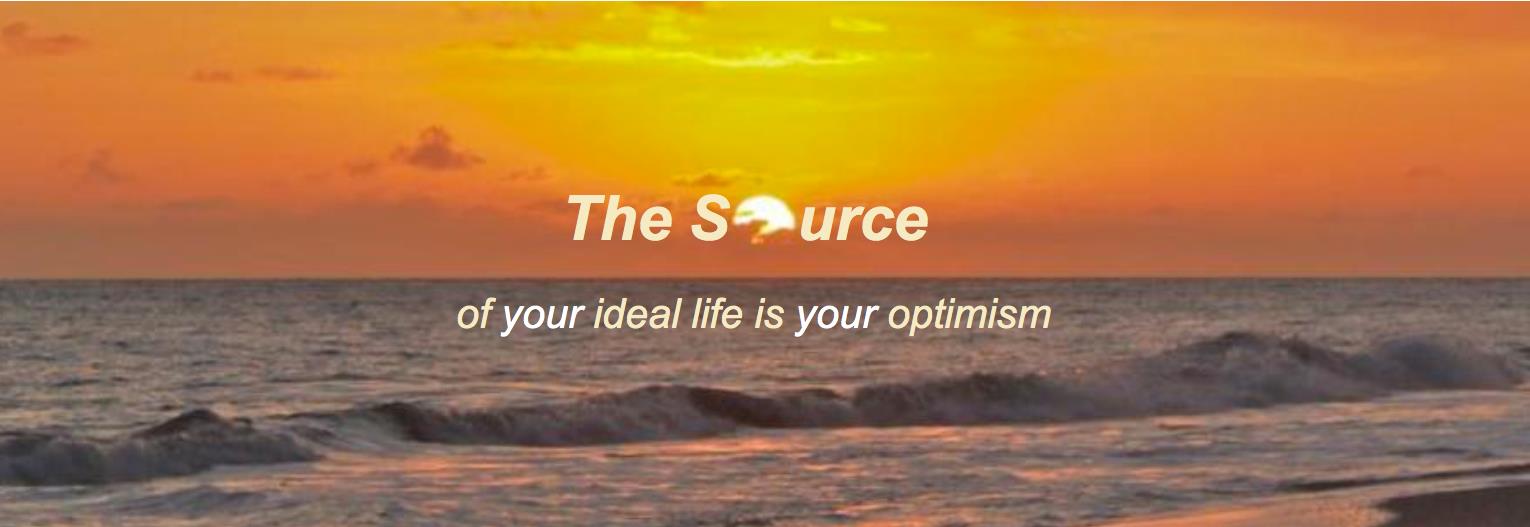








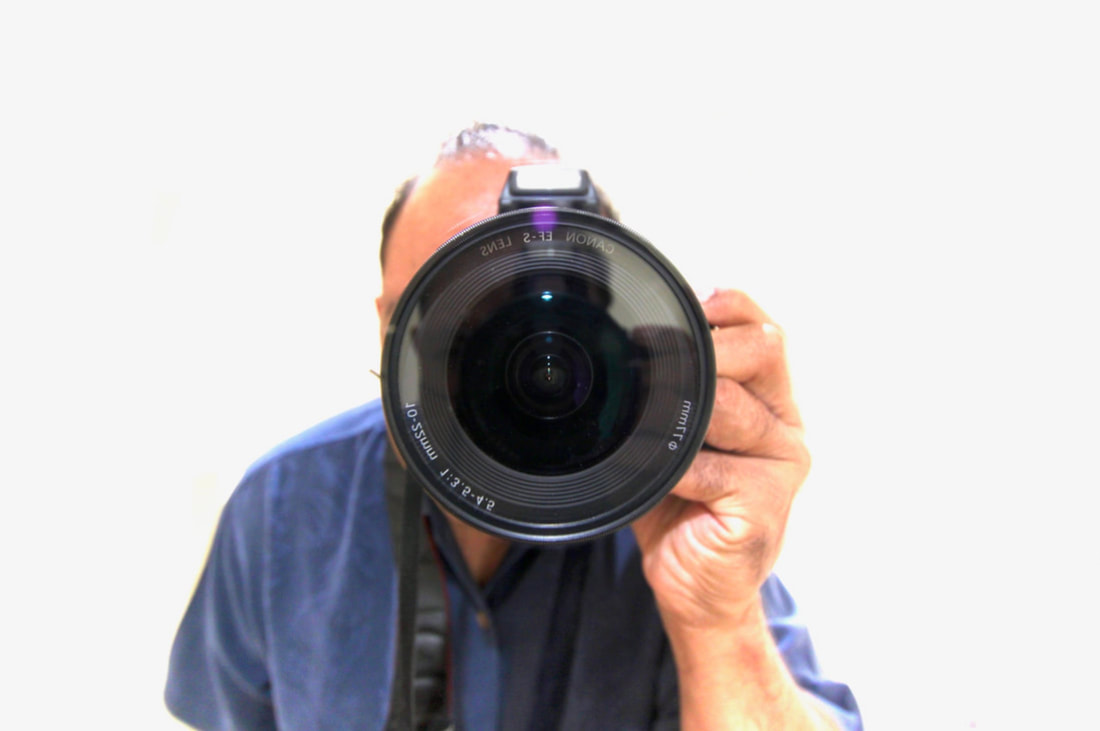



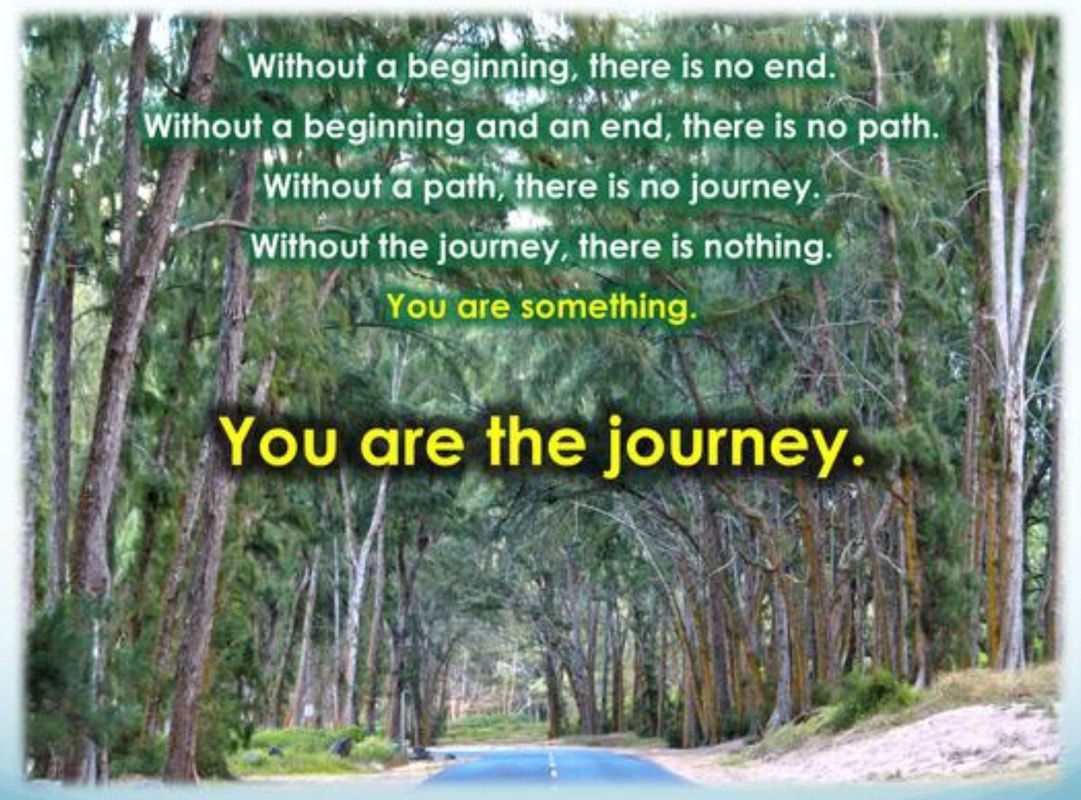
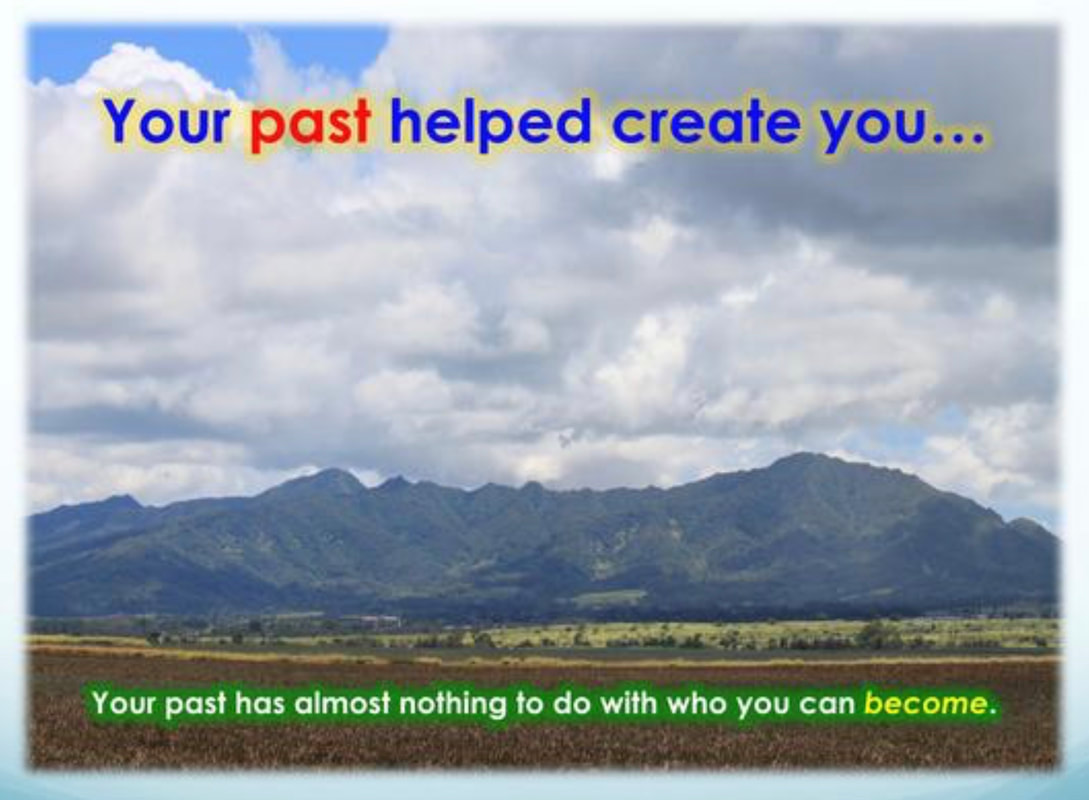
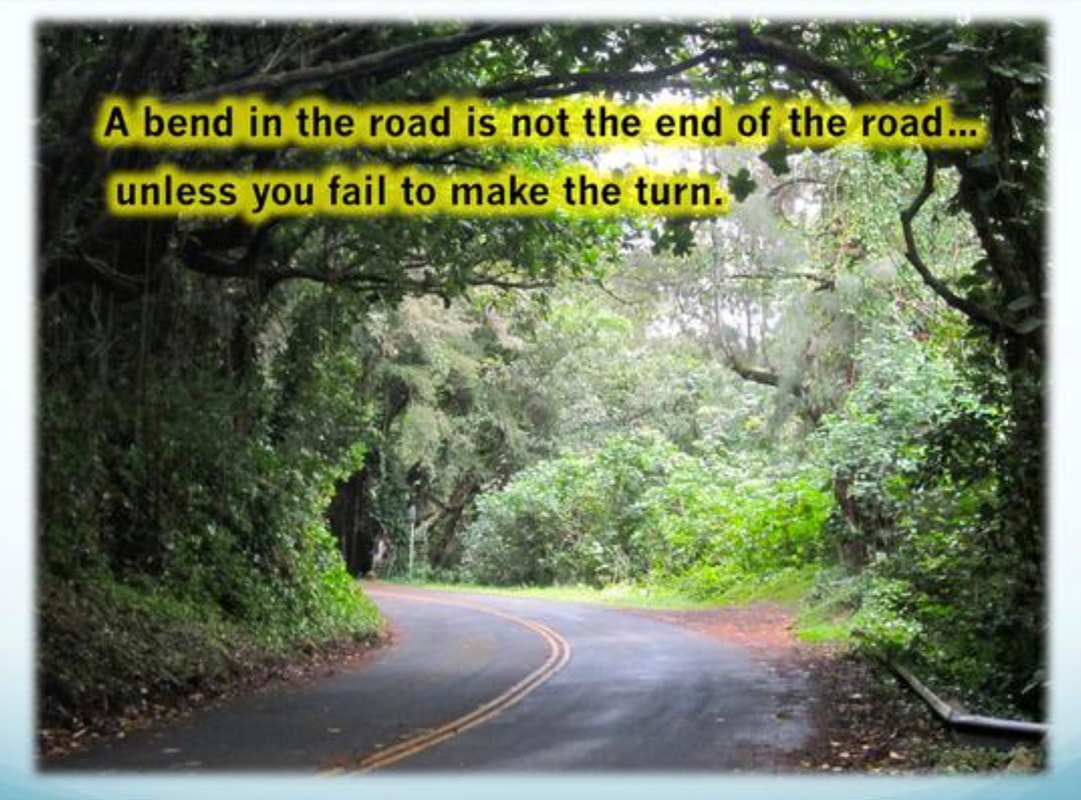

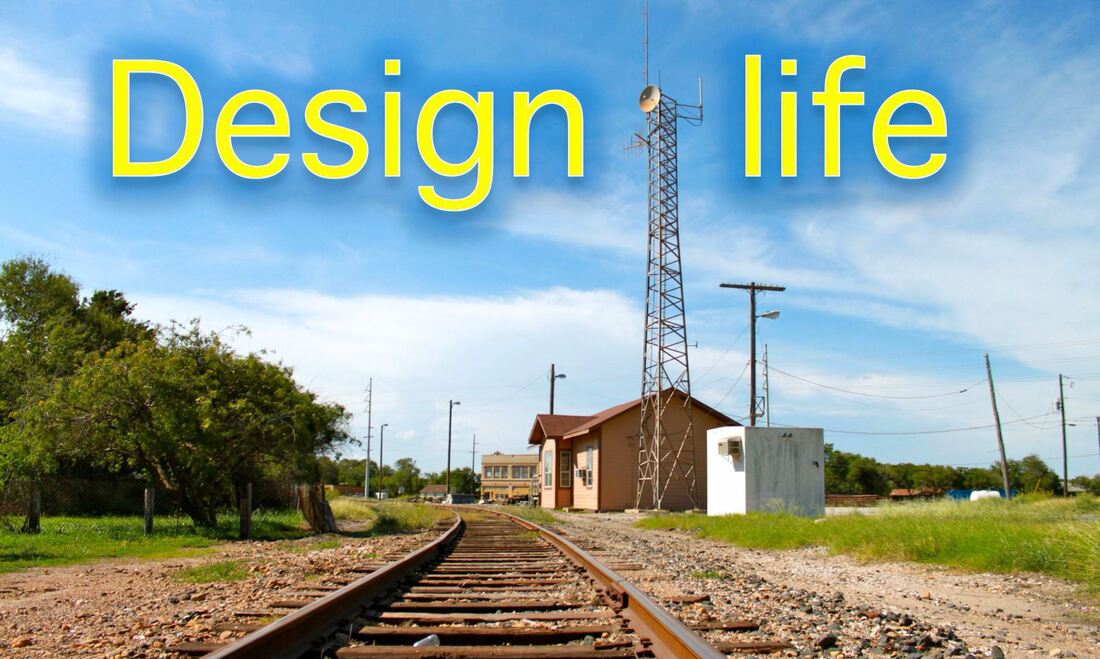
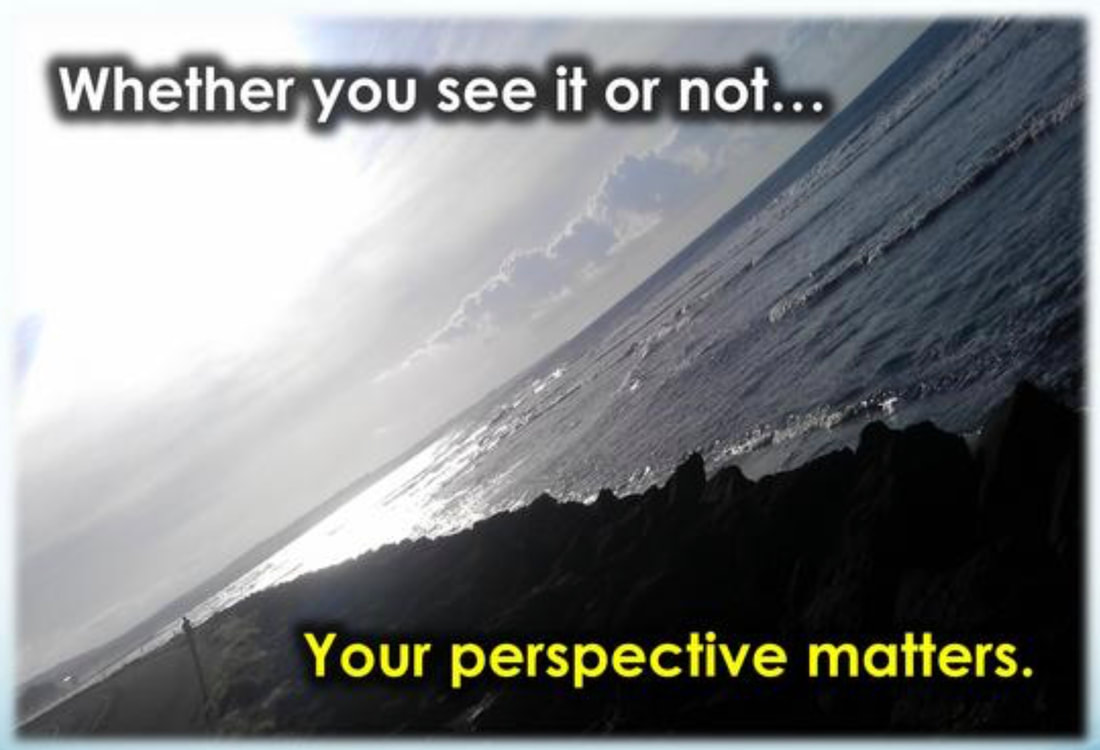





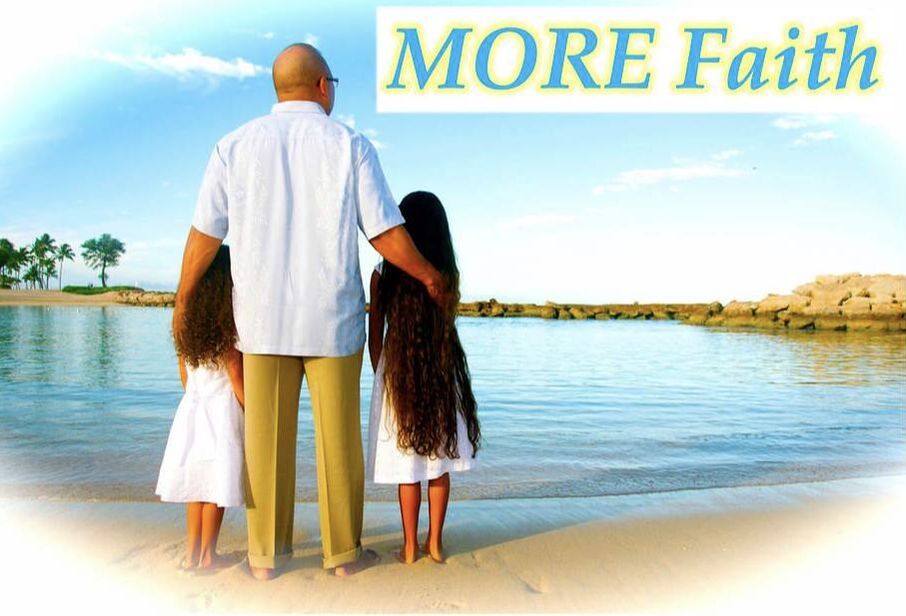
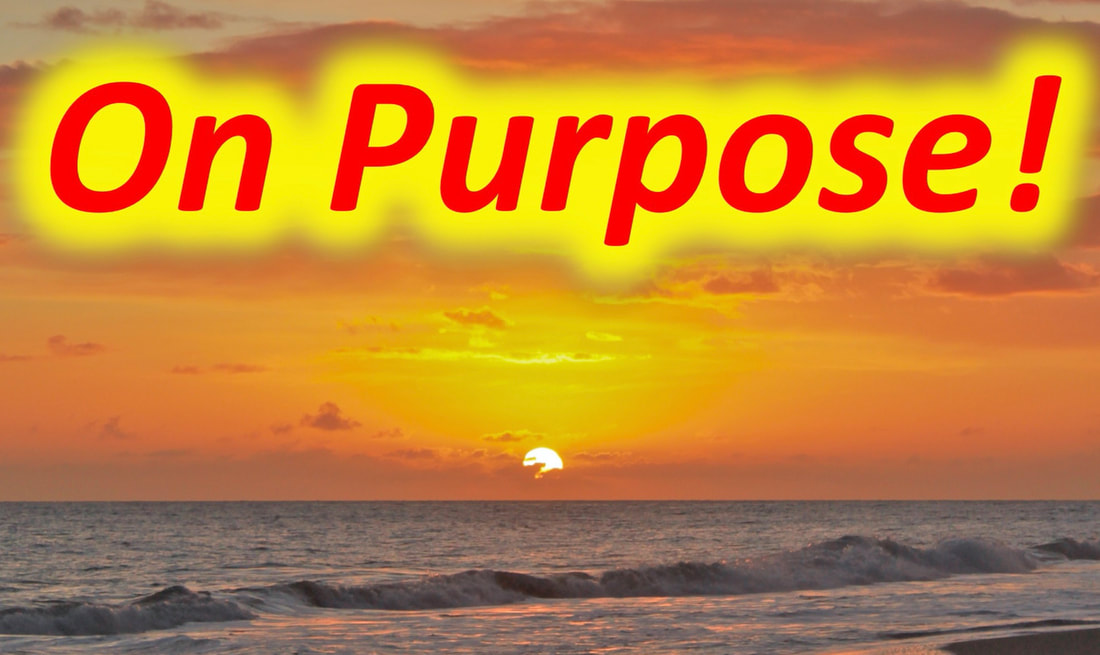
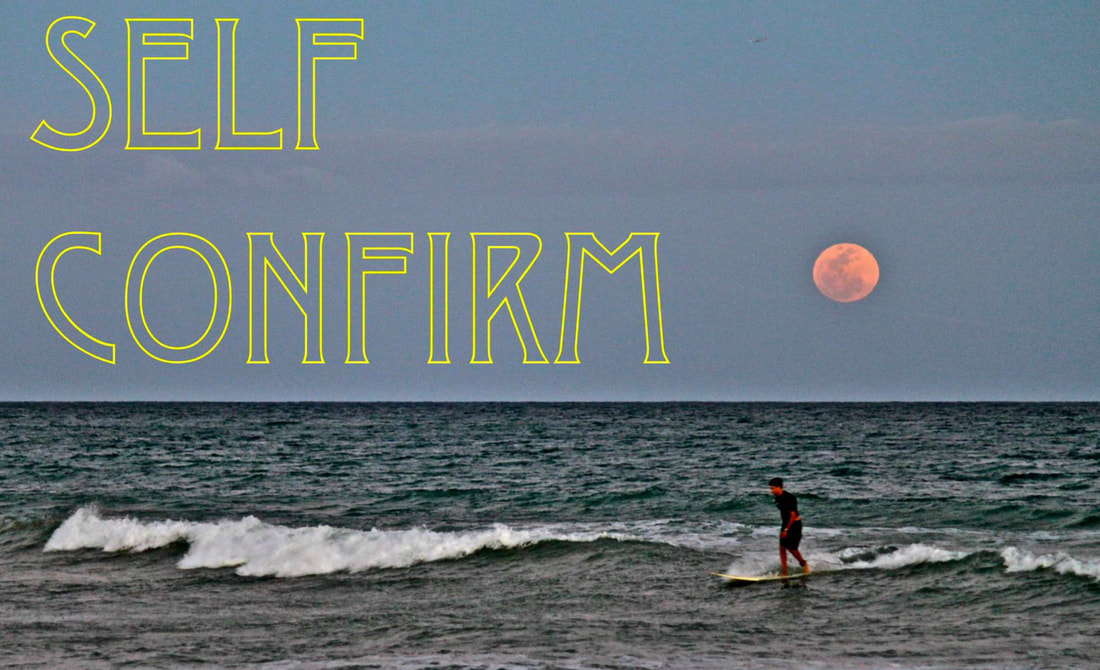
 RSS Feed
RSS Feed
